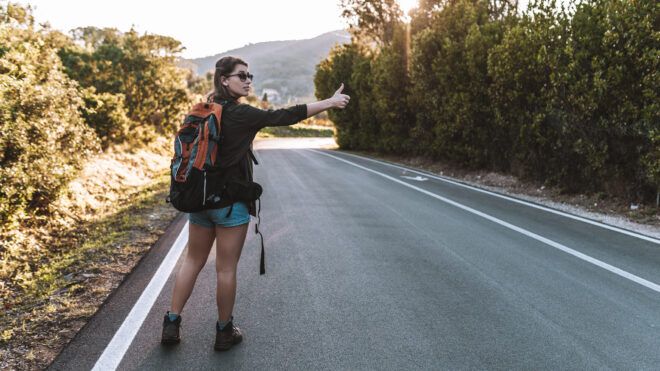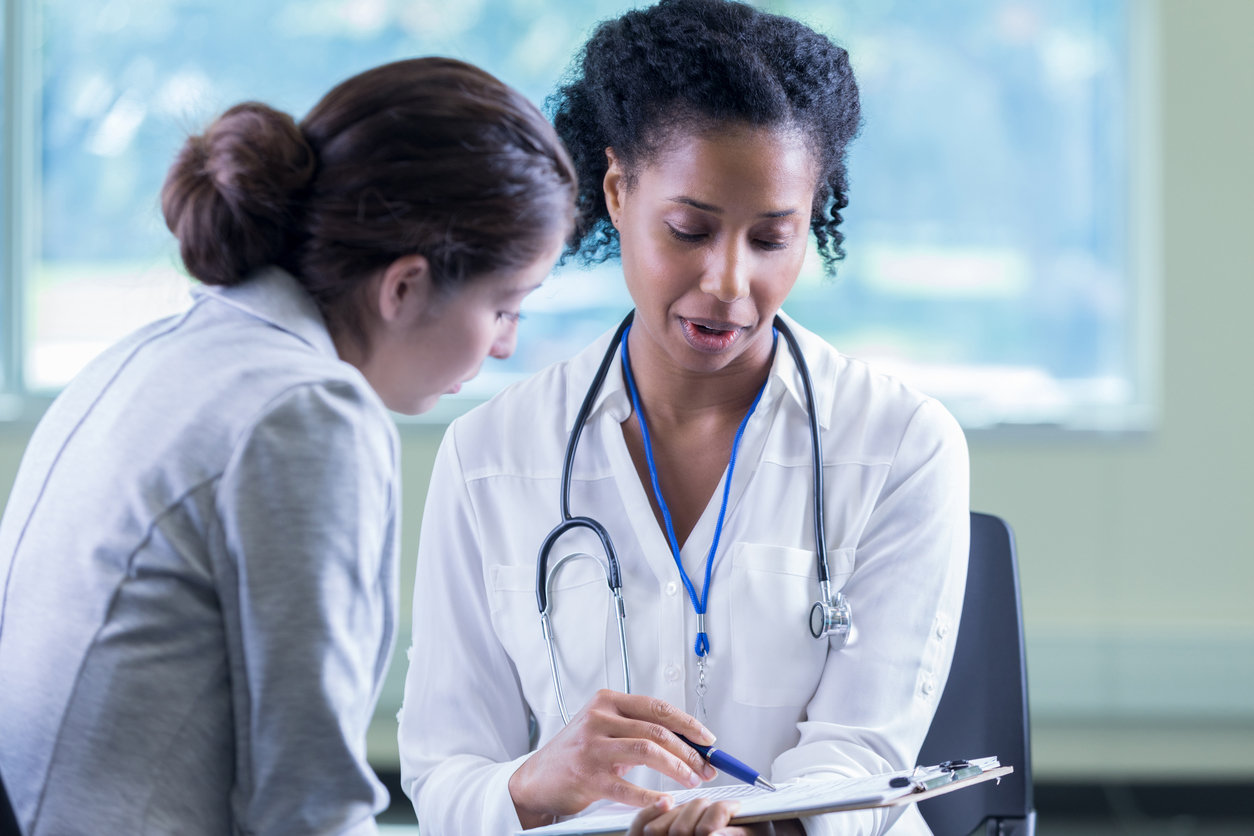
Several unnerving, but all too real facts: 12 percent or 1 out of 8 women develops breast cancer, the disease is diagnosed more than any other type of cancer, and it's the second-leading cause of cancer-related deaths for women in the US. Those stats may sound daunting, to say the least, but there are everyday, relatively easy measures women can take to reduce their breast cancer risk.
Because breast cancer is so common, researchers are constantly looking at various factors that influence risk and offering insight into which lifestyle moves actually guard against the disease. For that reason, there are a plethora of science-backed dos and don'ts that may help to reduce breast cancer risk.
These dos and don'ts can add up to what scientists refer to as a "cancer protective lifestyle."
By "making lifestyle decisions such as avoiding alcohol, being a healthy weight, being physically active, eating a diet rich in whole grains, vegetables, fruits, and beans," women can reduce their risk for cancer, notes the American Institute for Cancer Research in a press release.
Alice Bender, MS, RDN, AICR's Director of Nutrition Programs says that small changes like walking 10 minutes each day and increasing that by a few minutes each week, or packing a dinner with colorful vegetables every day can add up to create "positive" change that reduces a woman's risk of being diagnosed with the all too common disease.
That said, a cancer-fighting lifestyle can go beyond the basics like eating more vegetables (especially cruciferous ones, like broccoli!) and making time for a daily sweat session. Here, 40 research- and expert-backed moves that may make a world of difference.
Eat More Vegetables, Especially Cruciferous Ones
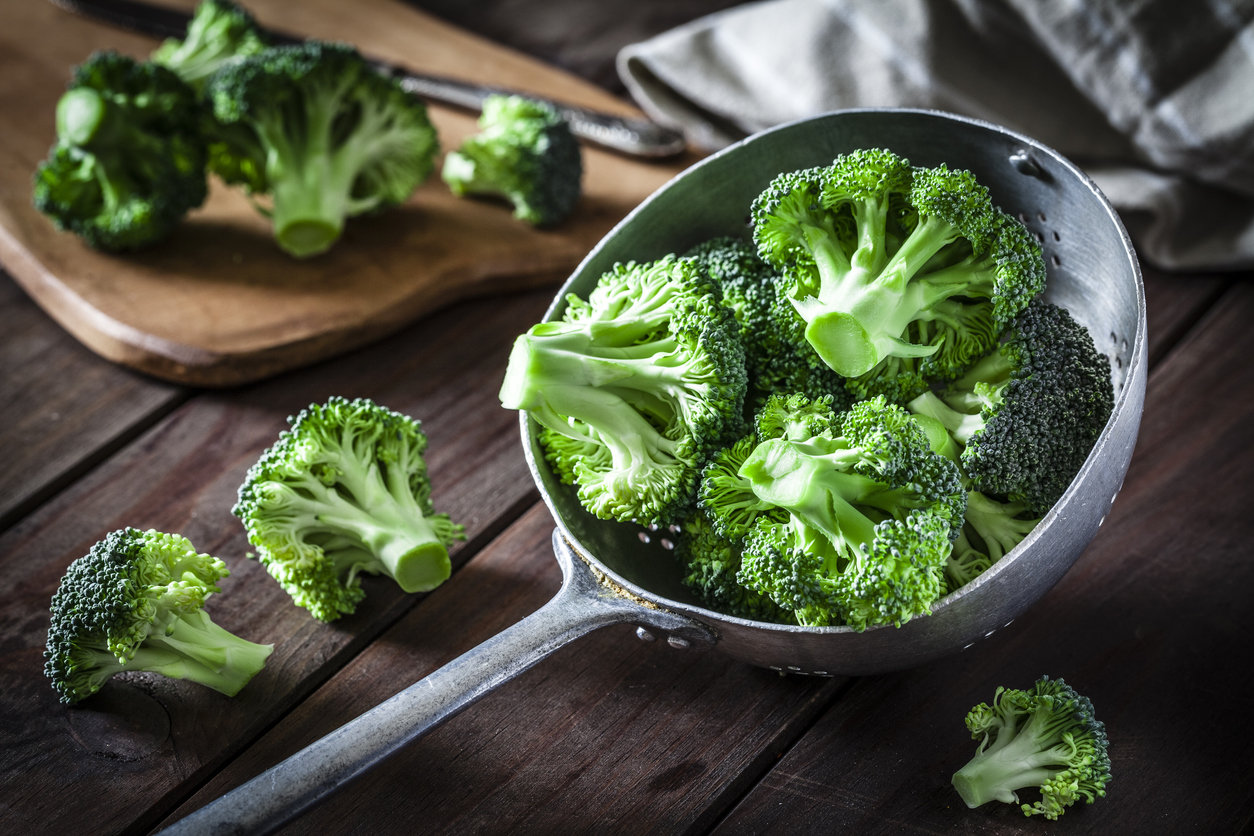
"In particular, include cruciferous vegetables, which are known to improve estrogen metabolism, a key player in breast cancer risk," explains Suzanne Dixon, RDN, a registered dietitian, epidemiologist, and nutrition expert with The Mesothelioma Center. "Lower estrogen = lower breast cancer risk."
Limit Fast Food
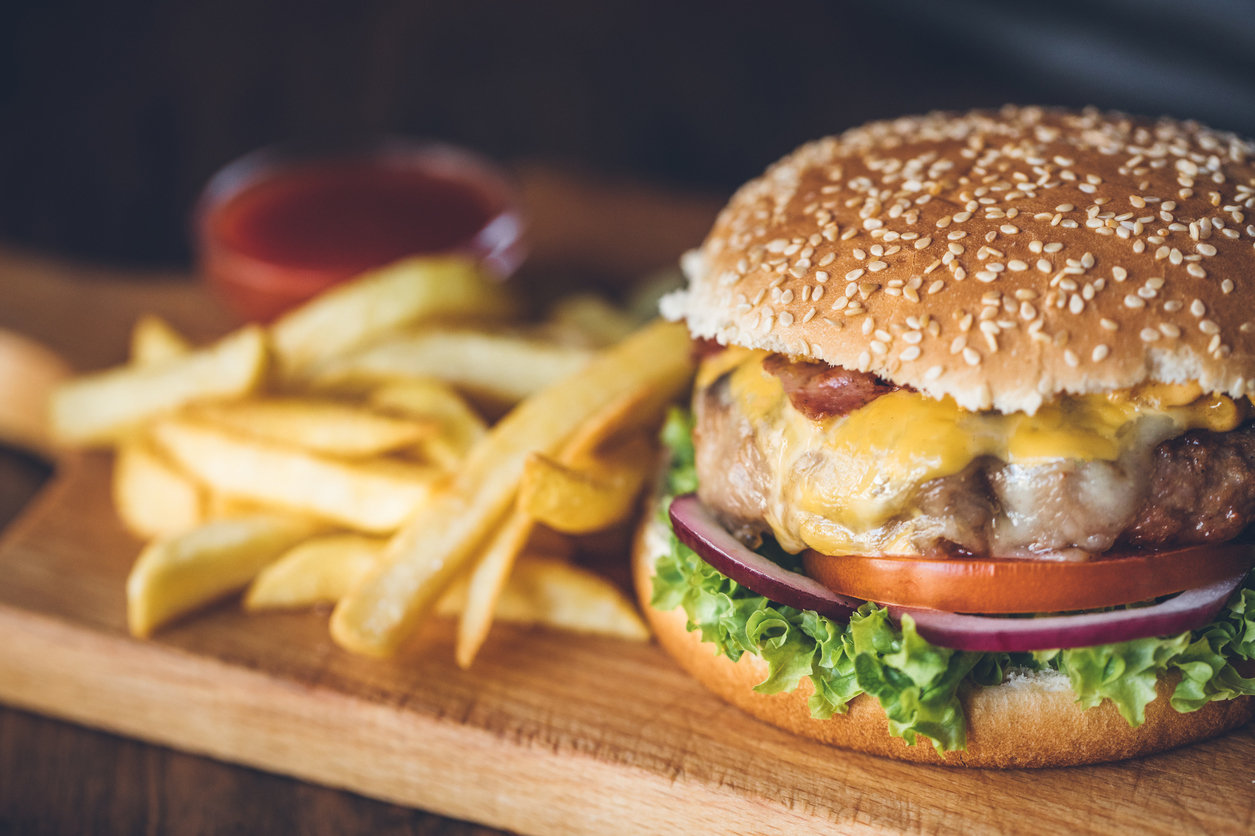
"Fast food is loaded with fat, saturated fat, added sugar, and far too many calories per serving," notes Dixon. "All of these things can contribute to breast cancer list. Only rely on these foods in a pinch. Don't make them a daily habit."
Do Low-Impact Physical Activity
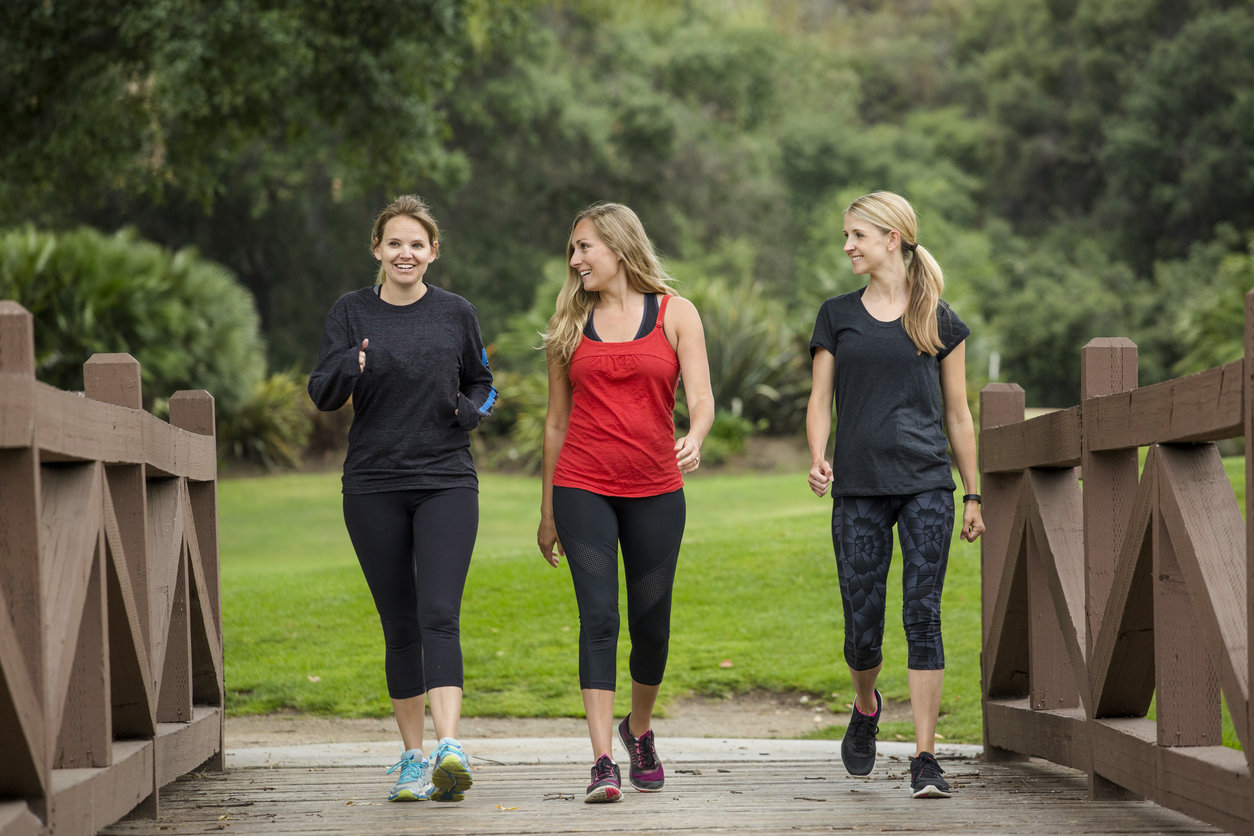
Although advice to exercise is well-worn, experts agree that it can do wonders for lowering risk of various diseases, including breast cancer. Any physical activity — including low-impact activities like walking — will reduce breast cancer risk, notes Dixon.
Step Up the Workouts
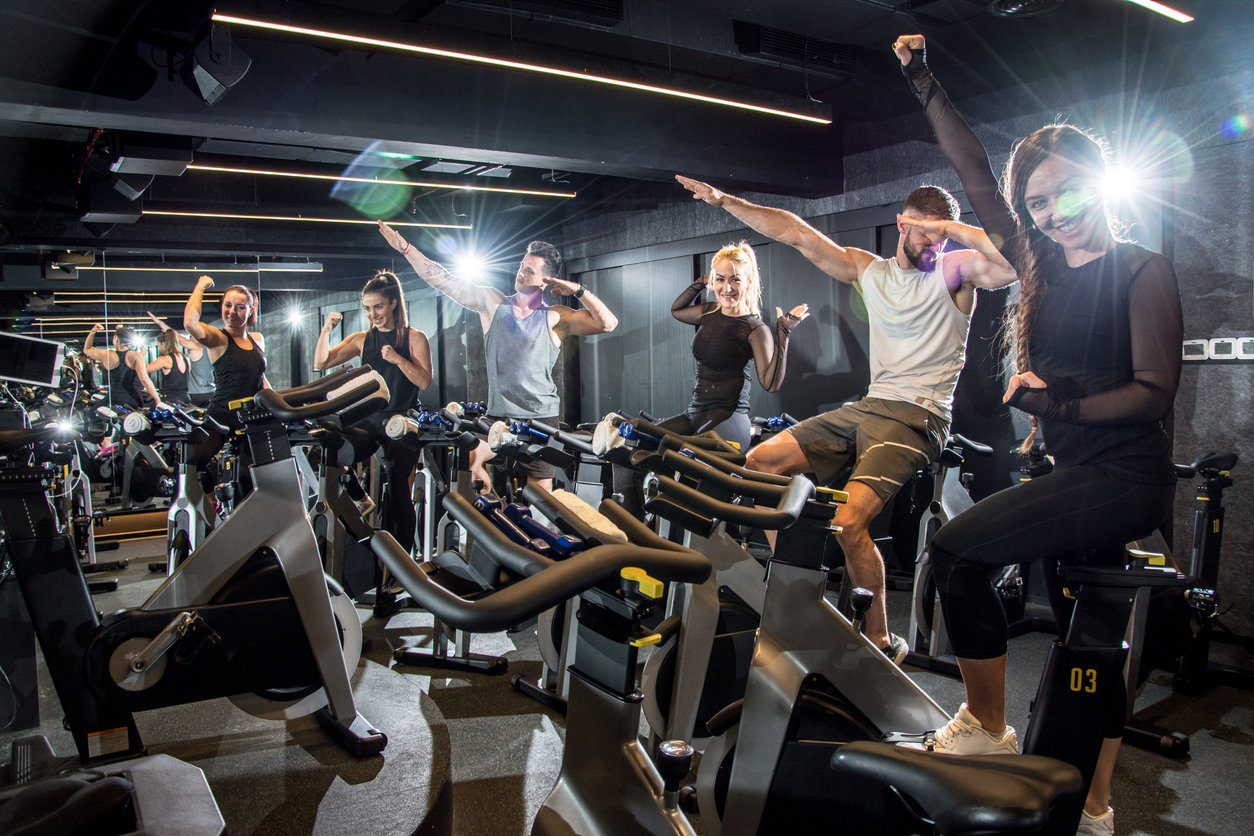
Make time for more intense sweat sessions (think running or spinning) on occasion, as well. "Get to an intense sweat session 2-3 times per week," advises Dixon. "Vigorous physical activity is strongly associated with reduced breast cancer risk."
Live Near a Park, Garden, or Other Green Space
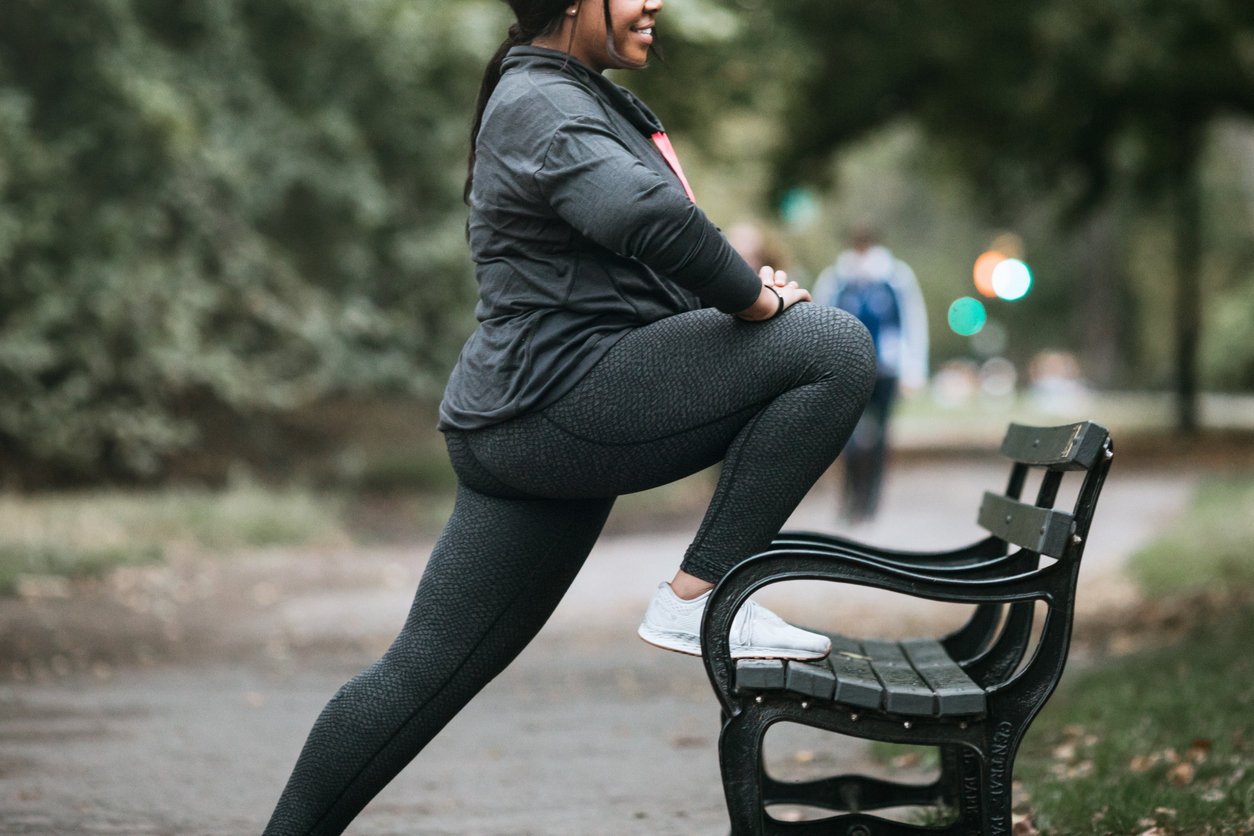
A study in the International Journal of Hygiene and Environmental Health found that breast cancer risk is lower in women who live near parks, gardens, or other urban green spaces.
Avoid Living Near Agricultural Areas
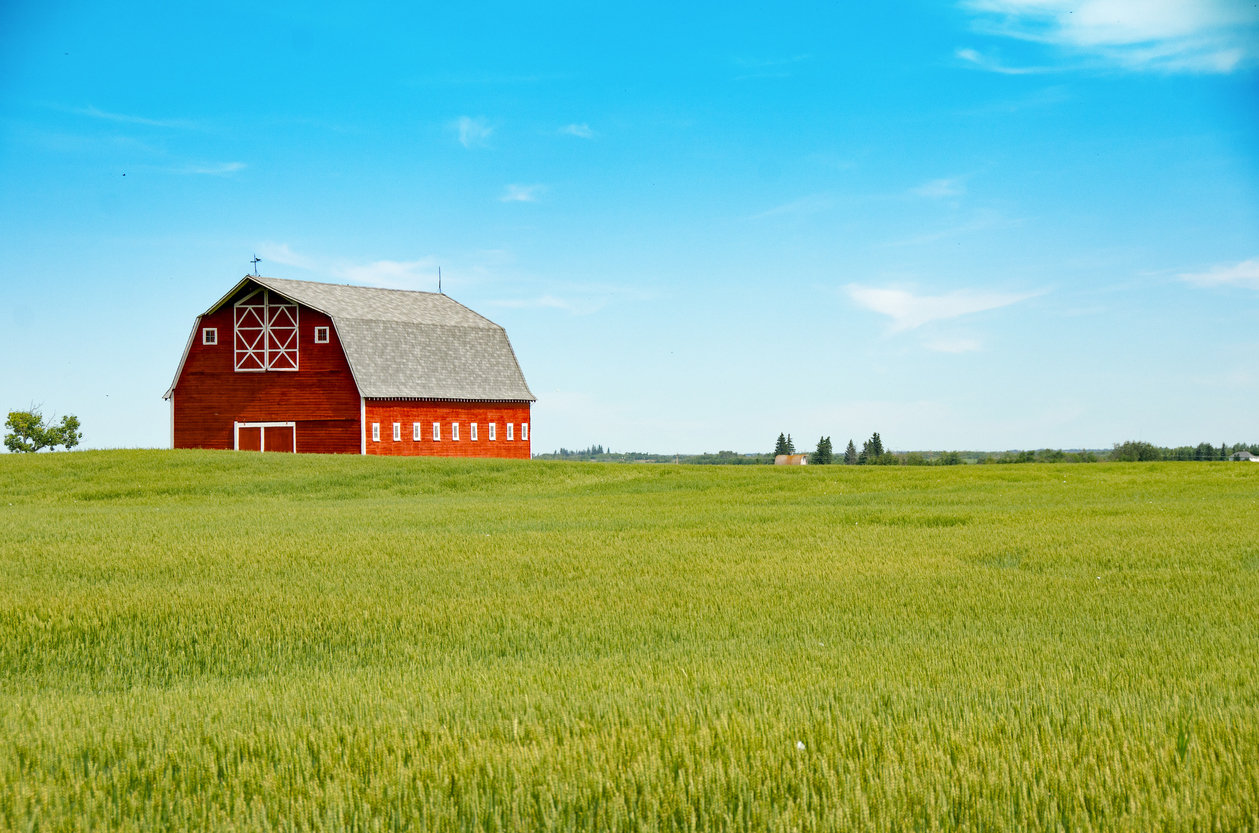
The same study found that women who lived closer to agricultural areas had a higher risk, which could be tied to use of pesticides.
Start Annual Mammograms at 40
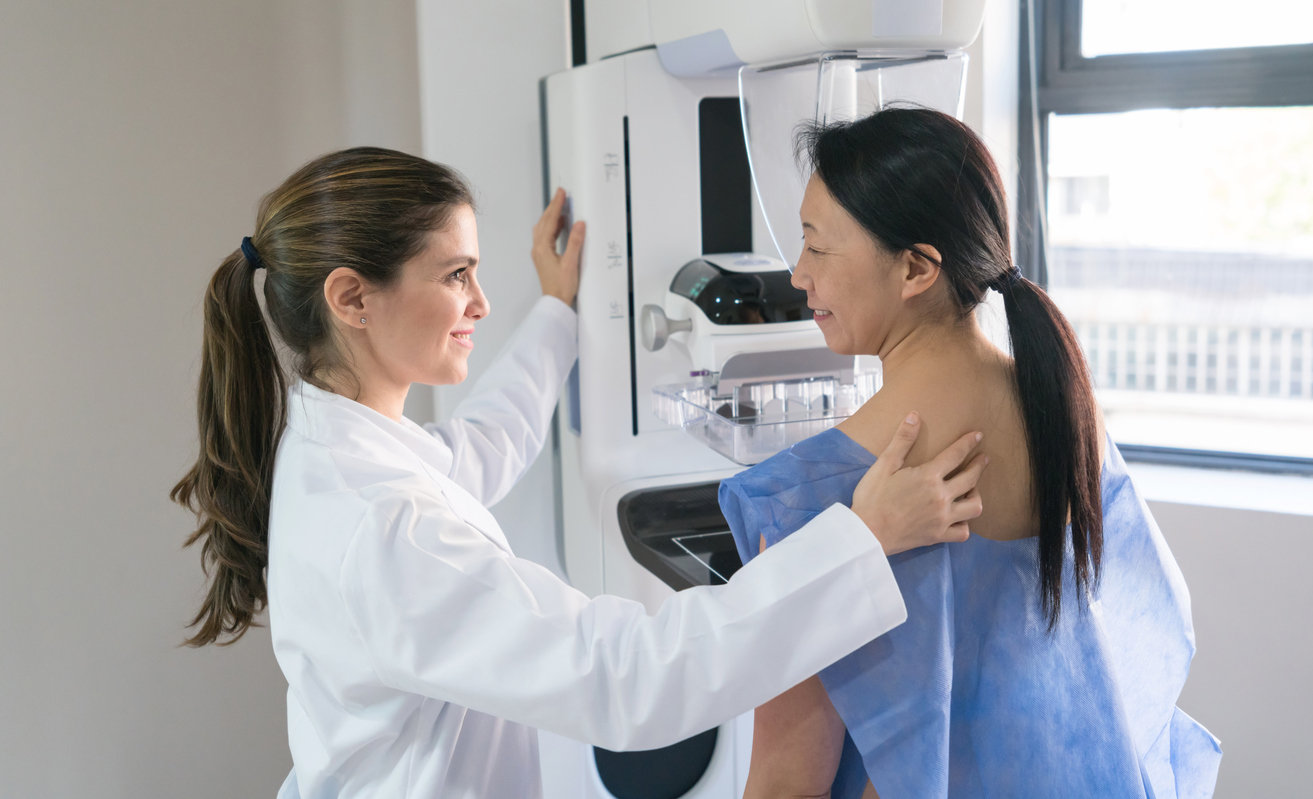
Despite a 2009 US Preventive Services Task Force advice to wait until 50 to avoid false positives, the American Medical Association, the American Congress of Obstetricians and Gynecologists, the American College of Radiology, the National Cancer Institute, and the National Comprehensive Cancer Network all have more recently issued guidelines saying that all women should be eligible for screening mammograms starting at age 40. For women who have average risk, they should start getting clinical breast exams and annual mammograms when they turn 40.
Those With Higher Risk, Start Mammograms Before 40

Factors that influence the risk and may make a woman a candidate for earlier mammograms include:
- family history of breast or other related cancers (ovarian, melanoma)
- any test results for abnormal genes linked to a high risk of breast cancer
- results of past breast biopsies, even if they were benign
- personal history of being treated with radiation to the face and/or chest before age 30
- breast density
- weight, if you’re overweight or obese
- level of physical activity
- any use of postmenopausal combined hormone replacement therapy (HRT)
- alcohol consumption, if you regularly drink more than three alcoholic beverages per week
- the amount of processed food and trans fats you eat
- your smoking history
- whether or not you had a full-term pregnancy or breastfed
Breastfeed, if Possible
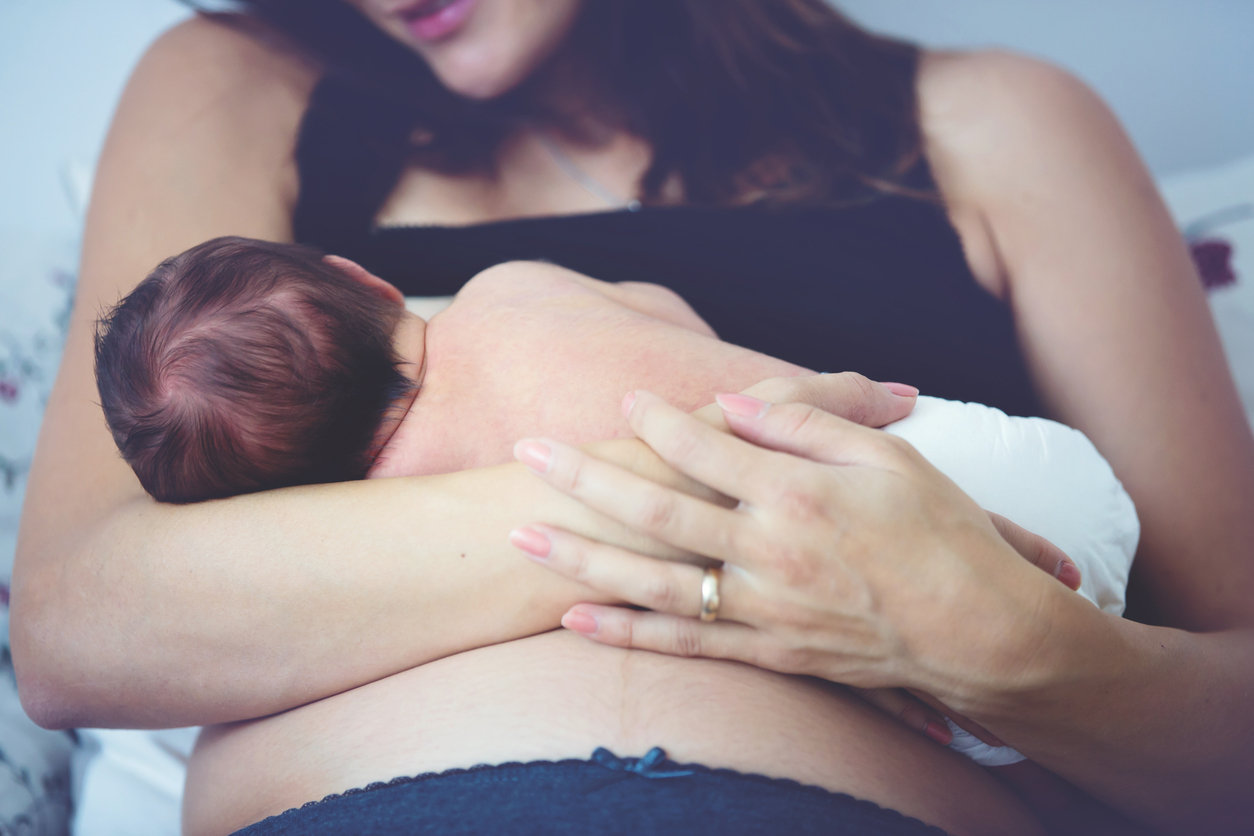
"If you're in the stage of life when you're starting a family, breastfeed each child, if you can," says Dixon. "Breastfeeding is a known breast cancer risk reducer."
Don't Rely on Supplements
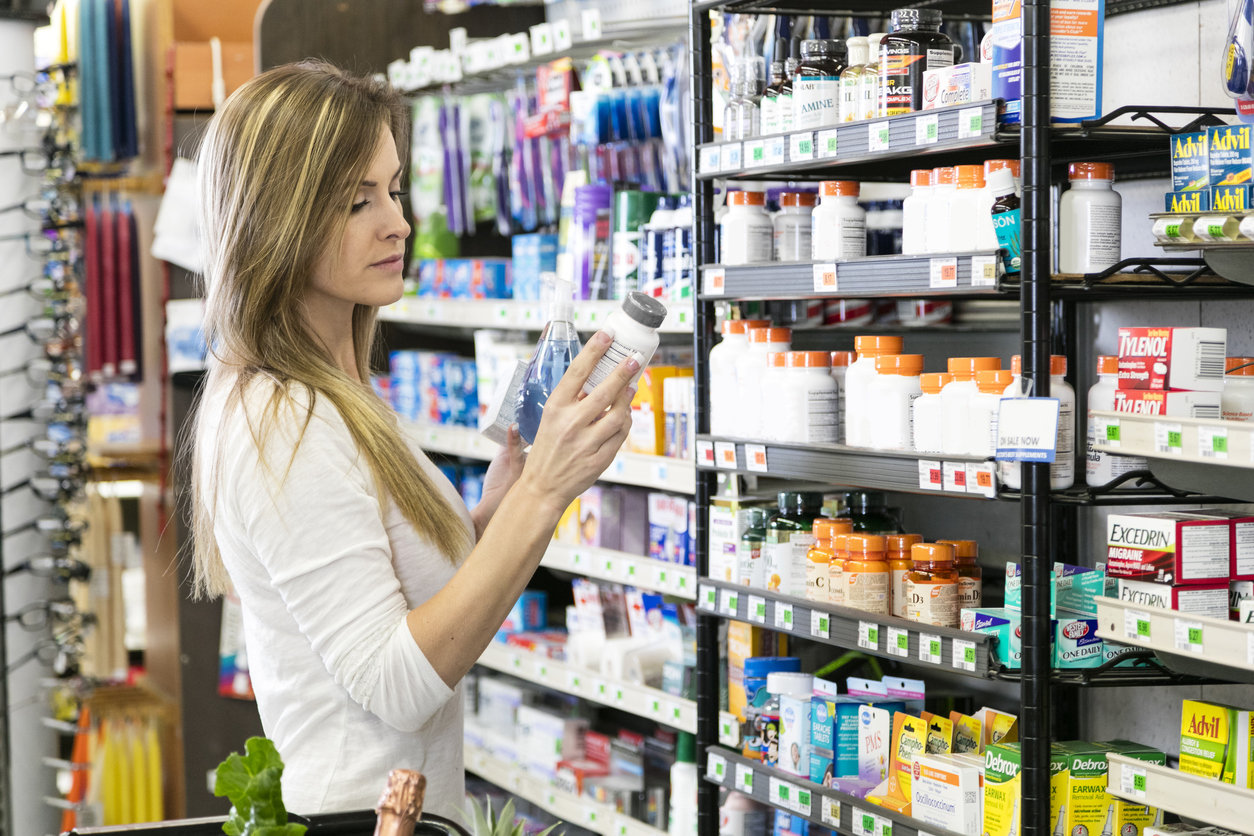
Although there's merit in working with your doctor to figure out which vitamins, herbs, and supplements may benefit your health overall, it's best to stick with whole foods, notes Dixon.
Skip (or Limit) Soda

In a study published in the journal Public Health Nutrition, people who drank sugar-sweetened beverages like soda were more likely to develop cancer, including postmenopausal breast cancer.
Avoid Highly Processed Foods
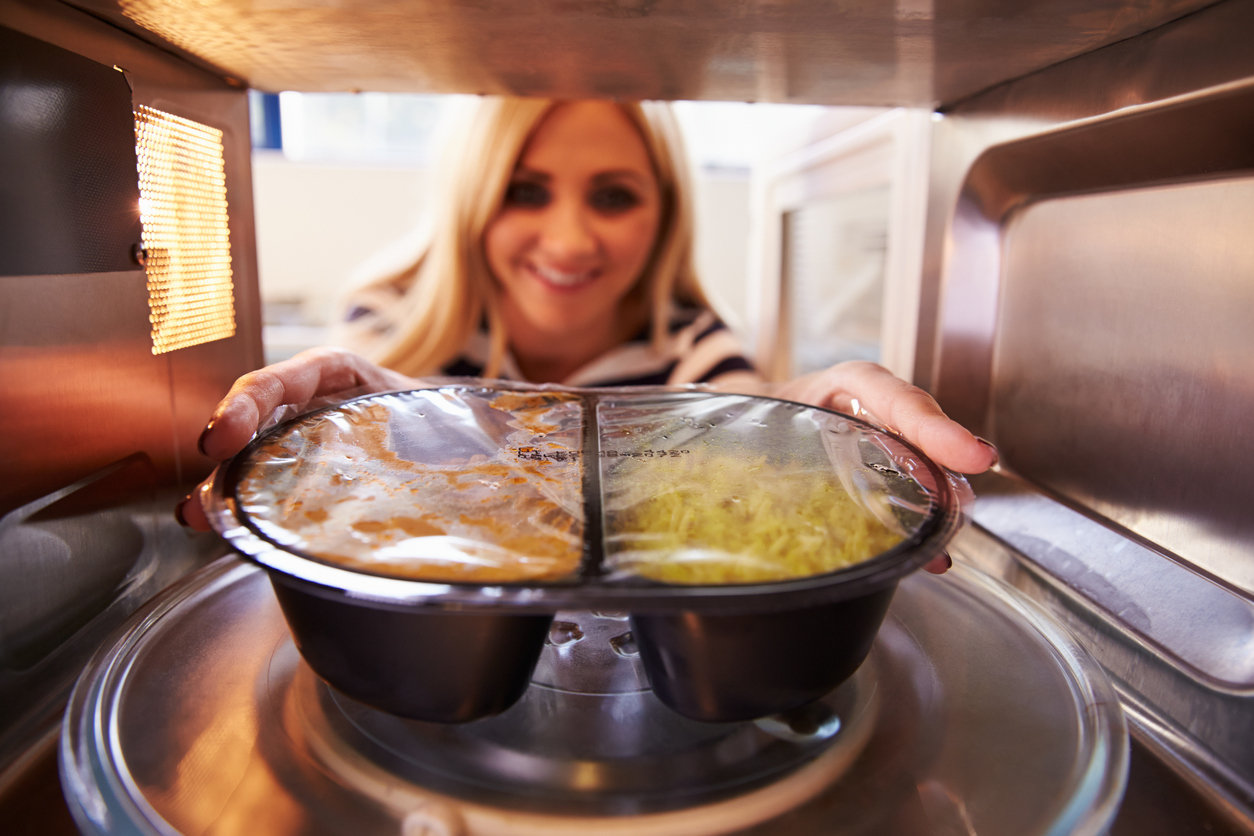
Specifically, instant noodles, packaged snacks, frozen meals, and chicken nuggets were among foods studied in a BMJ study. The researchers found that a 10 percent increase in the proportion of foods like these in your diet can lead to a more than a 10 percent increase in risks of overall cancer and breast cancer.
Eat More Olive Oil
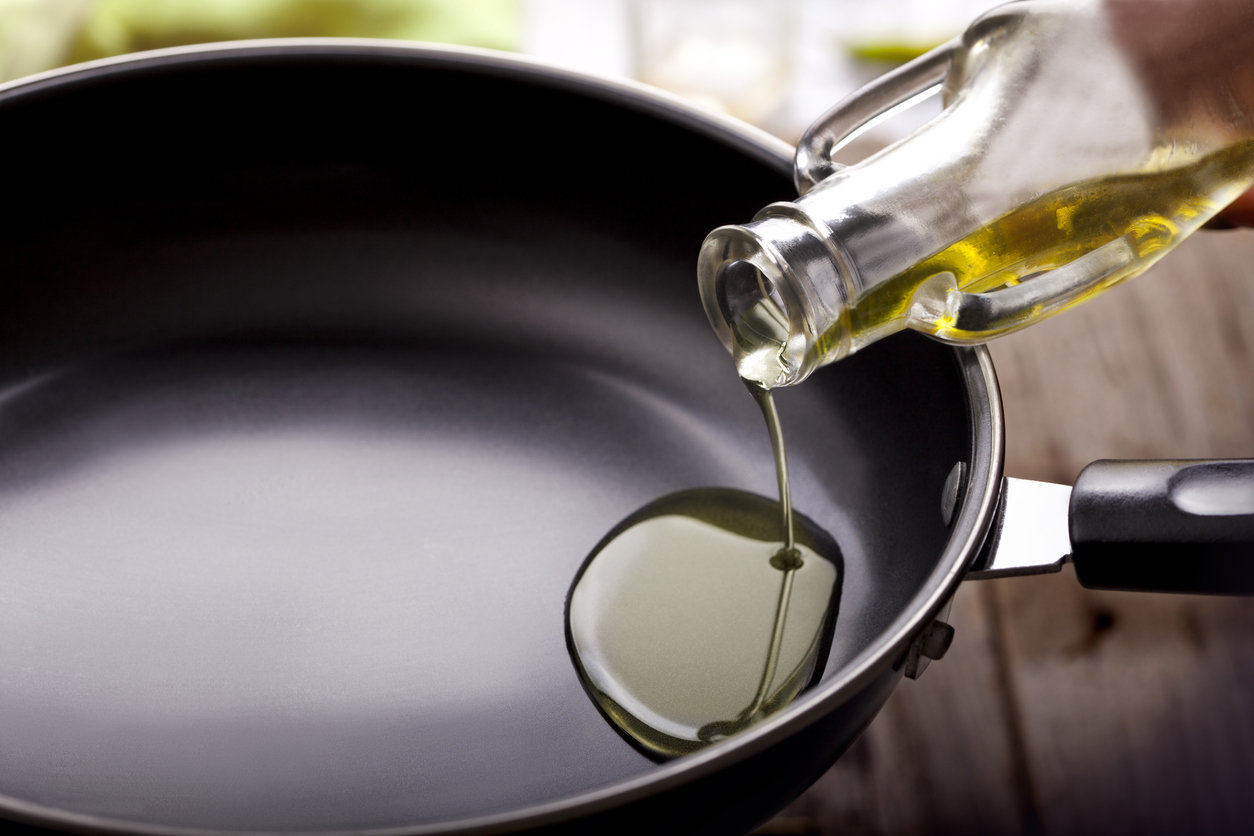
In the five-year Spanish study, 4,300 women were split into three groups: One ate extra servings of extra-virgin olive oil, another added an extra serving of nuts, and the third control group reduced fat. The olive oil group had 62 percent fewer breast cancer diagnoses than the control group.
Enjoy Coffee

A large study out of Sweden found that coffee consumption was associated with a modest decrease in breast cancer risk among postmenopausal women. The decreased risk was especially significant among women with estrogen receptor-negative breast cancer.
Snack on Apples
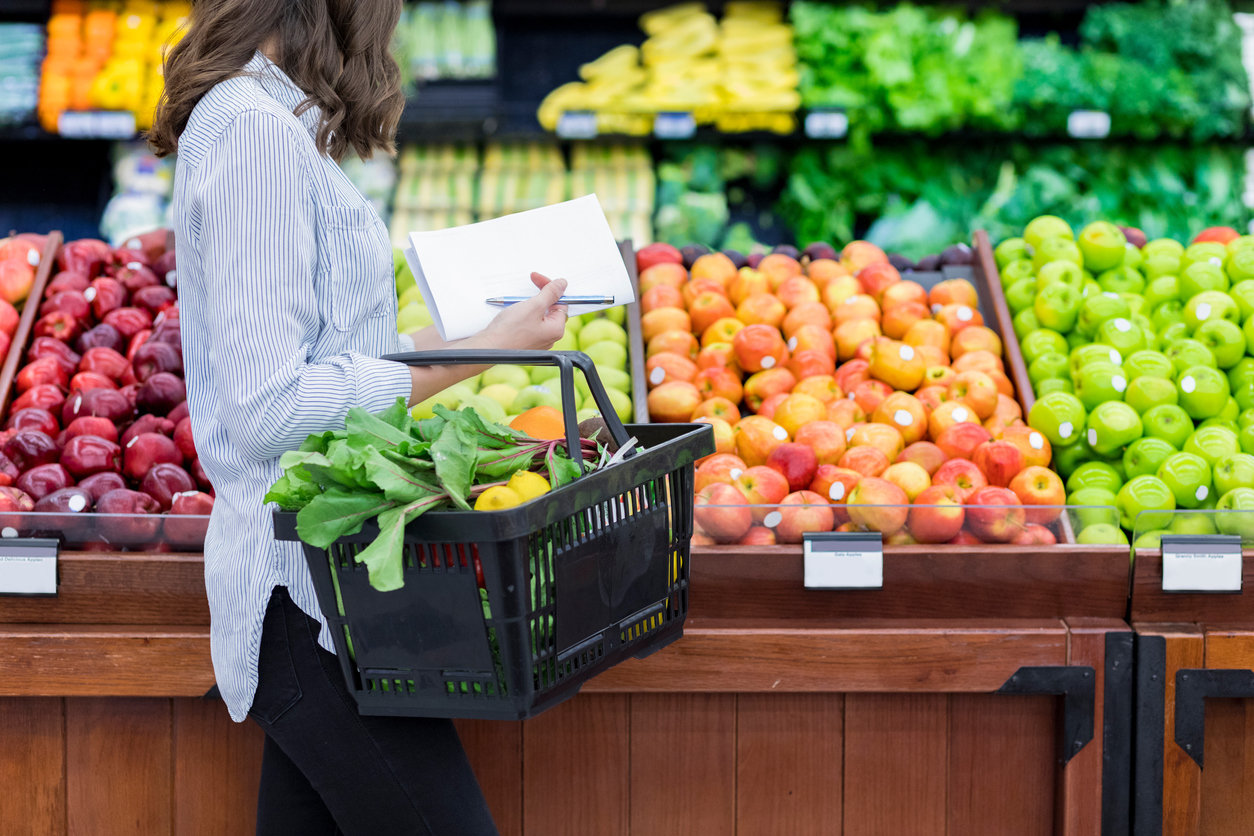
In research published in the Journal of Agricultural and Food Chemistry, Cornell researchers found that compounds called triterpenoids in apple peel can either inhibit or kill breast cancer cells in laboratory cultures.
Avoid Aspartame

A small animal study found that the sugar substitute aspartame was linked to leukemia, lymphoma, and breast cancer.
Check Yourself if You're Checking Labels More Often Than Not

"Remember, if you're reading a lot of labels to decide what to eat, you're already eating the wrong things," warns Dixon.
Shift Focus to Maintaining Your Current Weight vs. Losing
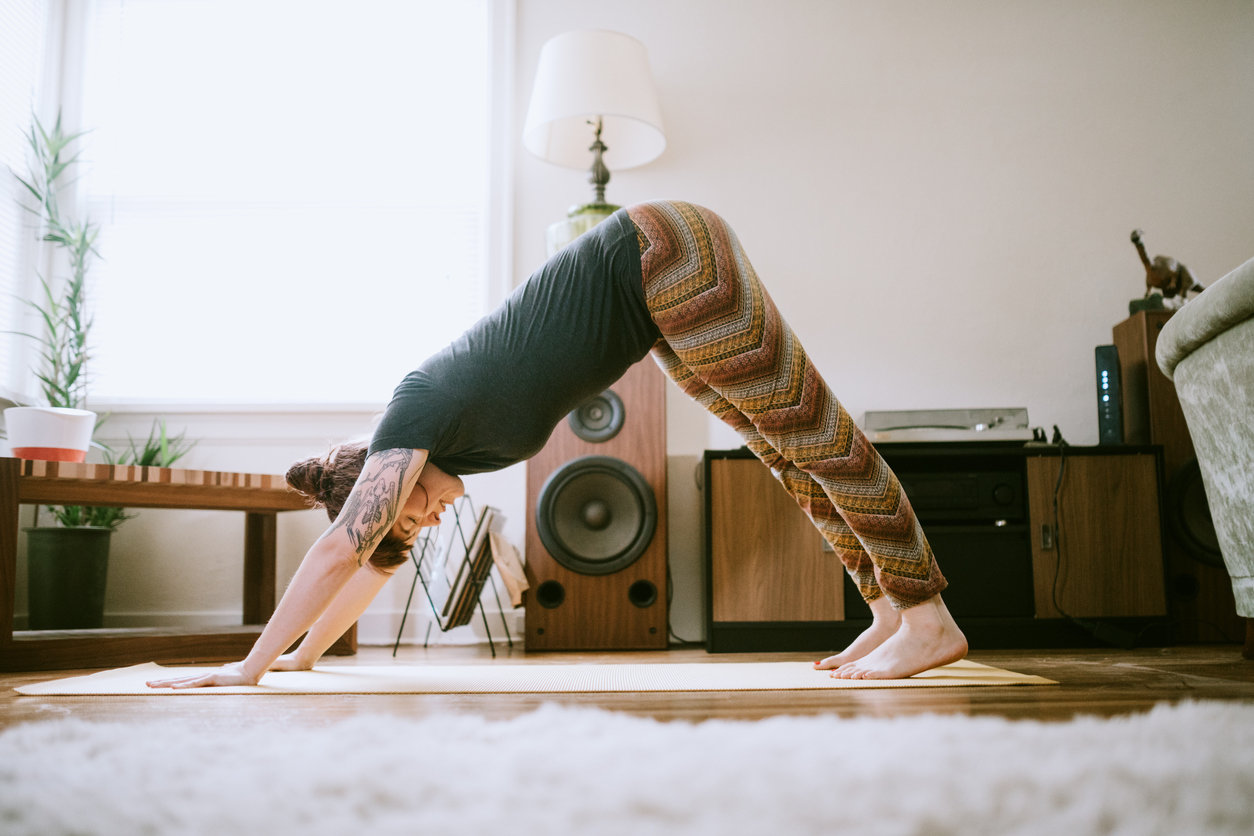
If you're like all too many women and have tried every diet under the sun for many years of your life, you'll do well to get off the diet roller coaster and focus on maintaining your current weight, Dixon shares. "Even preventing additional weight gain as you age can reduce breast cancer risk," she says. "You don't even have to shed pounds to reap the benefits of eating well and exercising if those things keep your weight where it is."
Reduce Body Fat in a Healthy Way
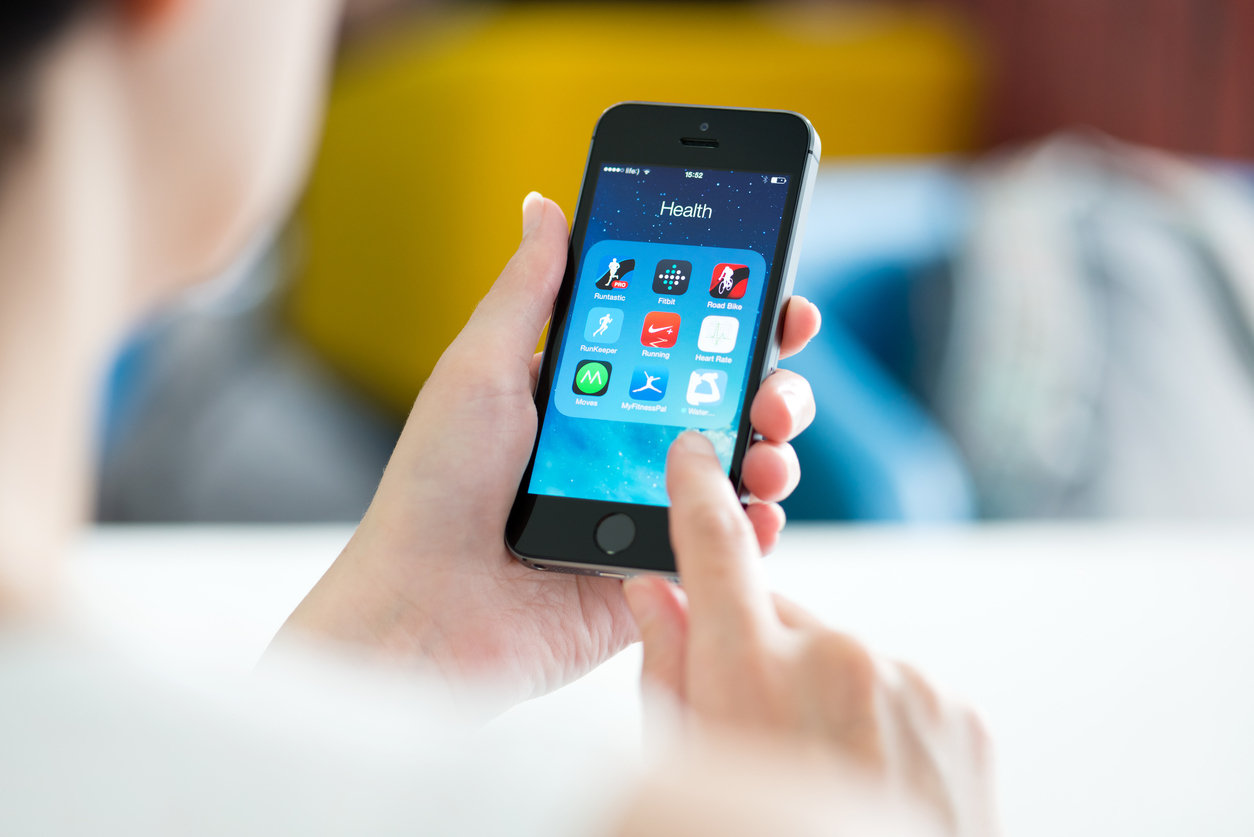
"Body fat tends to increase estrogen production and extra fat is pro-inflammatory," says Dixon. "Both factors mean excess body fat equals excess breast cancer risk."
Limit Red Meat
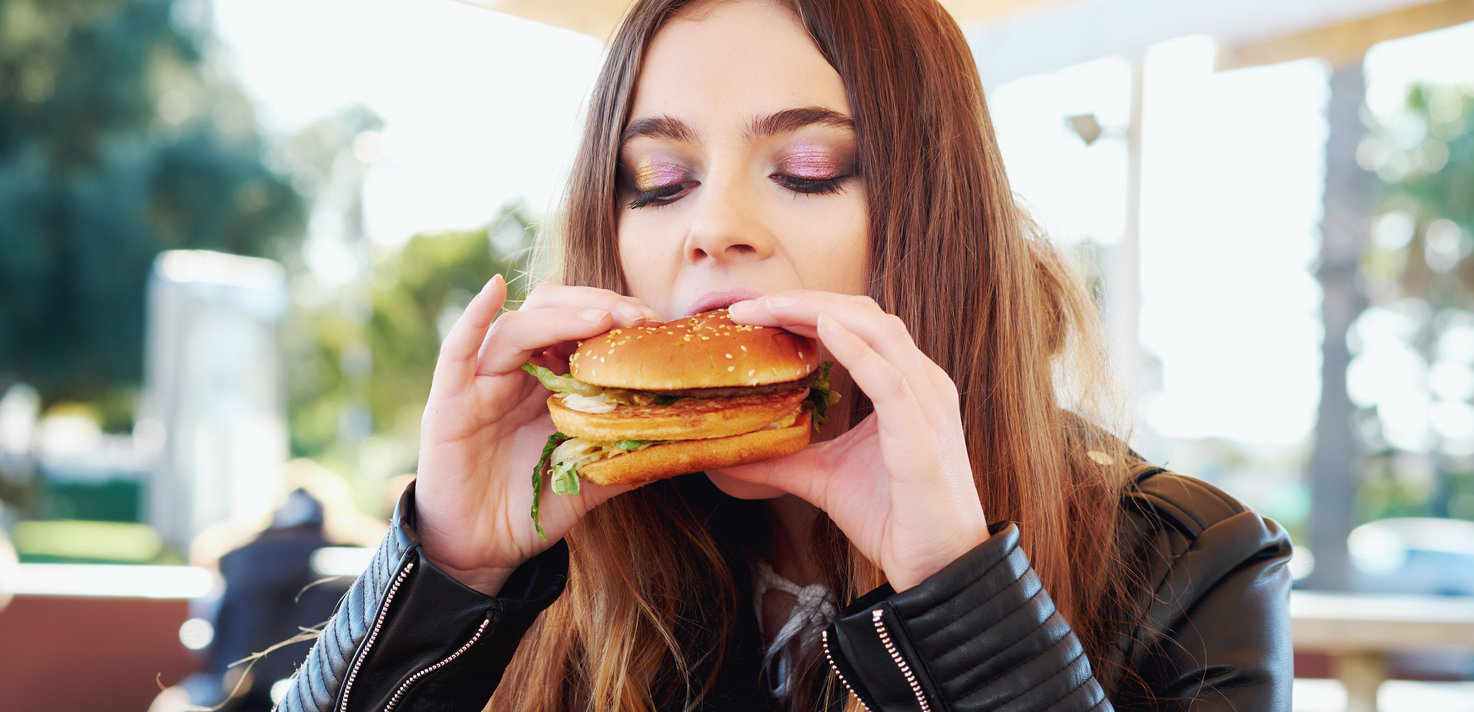
Limit fresh red meat to no more than 18 ounces per week to reduce cancer risk, advises the World Health Organization.
Eat More Fiber
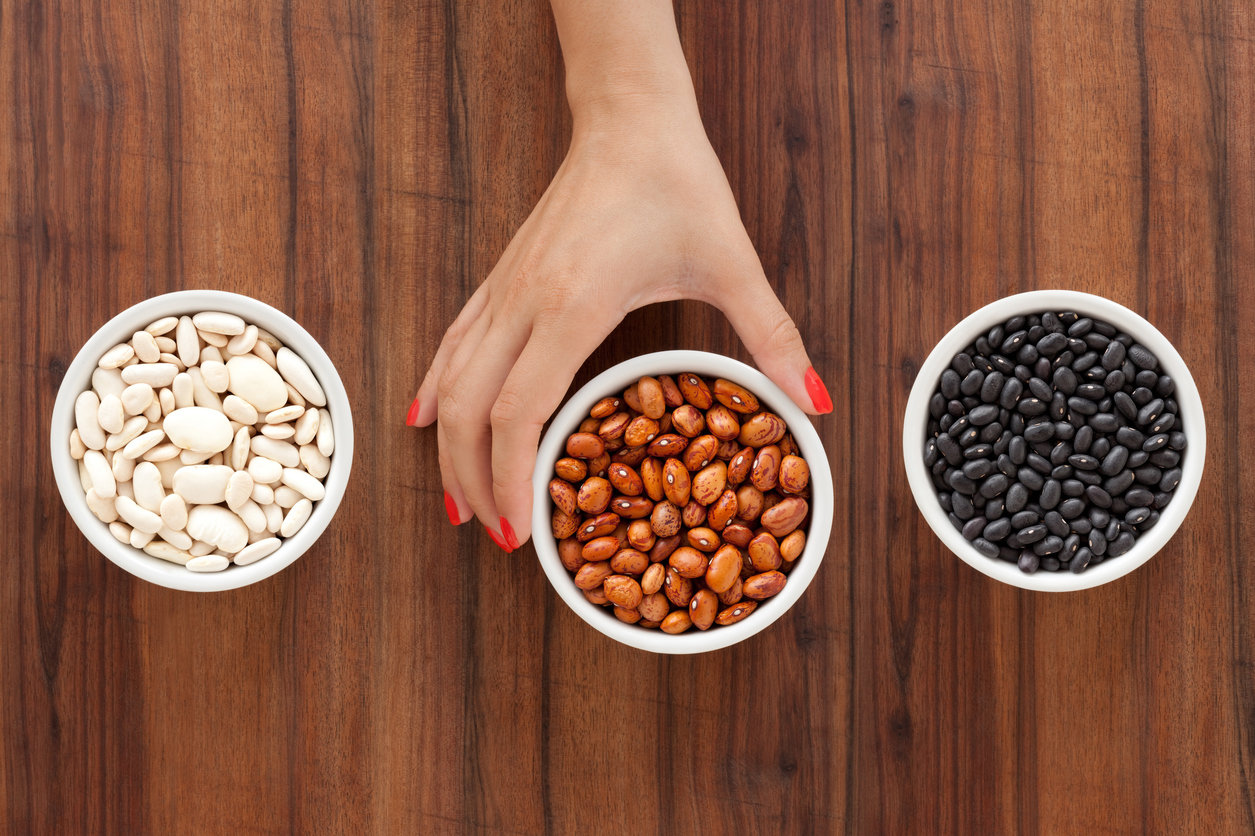
"High fiber diets help the body process and excrete estrogen, and keeping estrogen levels lower and stable over time will reduce breast cancer risk," Dixon notes. "Go for whole grains, legumes, vegetables, and fruit."
Eat More Nuts, Especially Walnuts
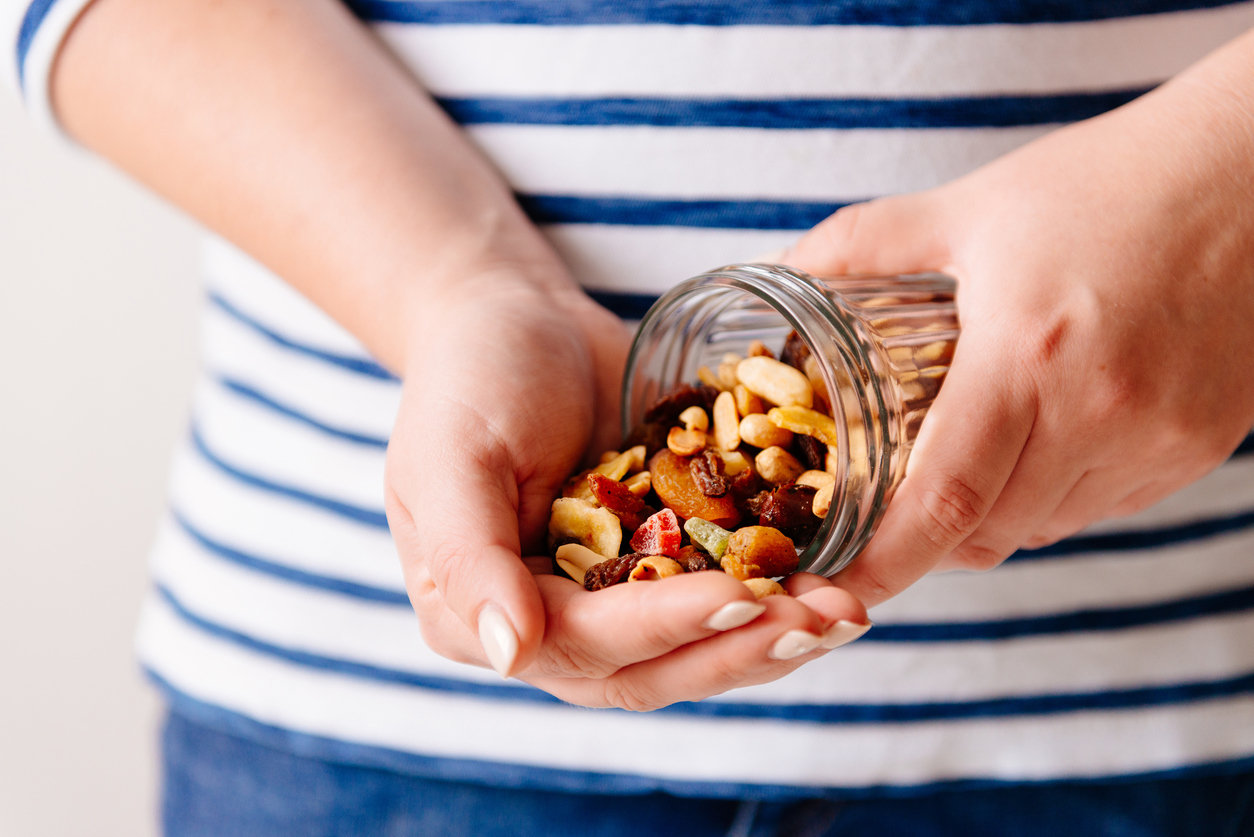
A study from the Marshall University School of Medicine in Huntington, West Virginia, found that when mice with human breast cancer ate the human equivalent of two servings of walnuts each day, they halted their cancer’s growth rate by 80 percent. In addition, the mice who ate the walnuts had 40 percent fewer tumors than those that did not.
Limit or Pass on Alcohol

Dixon acknowledges that this is a real bummer for those of us who enjoy a happy hour cocktail with friends. "However, regular alcohol consumption is one of the most well-established risk factor for breast and other cancers," she notes. "If you can mostly eliminate alcohol, that's a great goal. But if you enjoy alcohol, do so only in moderation. Keep it to one serving (5 ounces of wine, 1.5 ounces hard alcohol, 12 ounces regular beer) and aim for no more than two to three times per week."
Research supports this take: A 2017 report found that even one small drink a day increased breast cancer risk by 5 percent for premenopausal women and 9 percent for postmenopausal women. Women who drink more heavily — three drinks a day — are 1.5 times likelier than nondrinkers to get breast cancer.
Be Aware of Your Breast Density
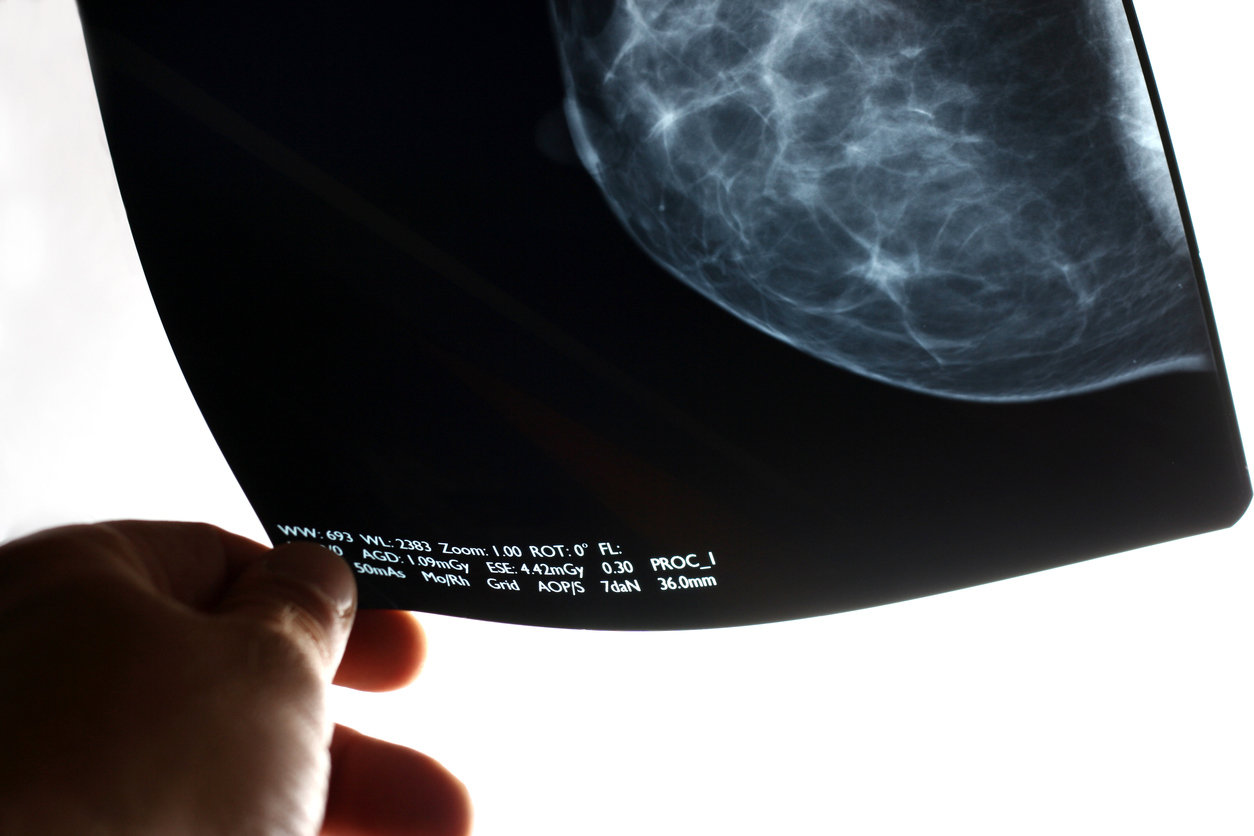
If you know that you have more dense breast tissue, you can talk to your doctor about taking a more proactive screening approach, as it increases risk and makes it tougher to detect cancer.
Keep Your Vitamin D Levels Up
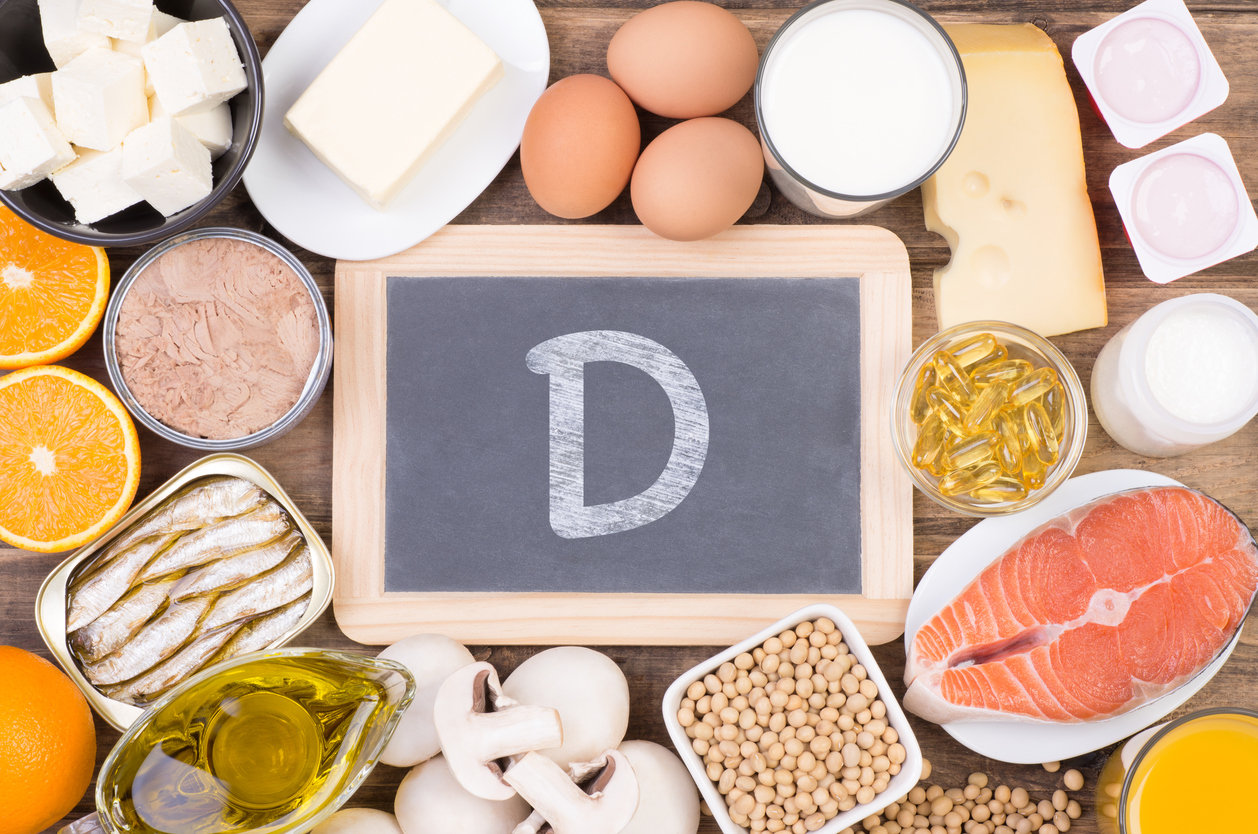
A study published in PLOS ONE showed that women who have higher vitamin D blood levels have a significantly lower risk for breast cancer. Have your doctor check your levels and take a supplement, if needed.
Make Sure You're Getting Enough Calcium
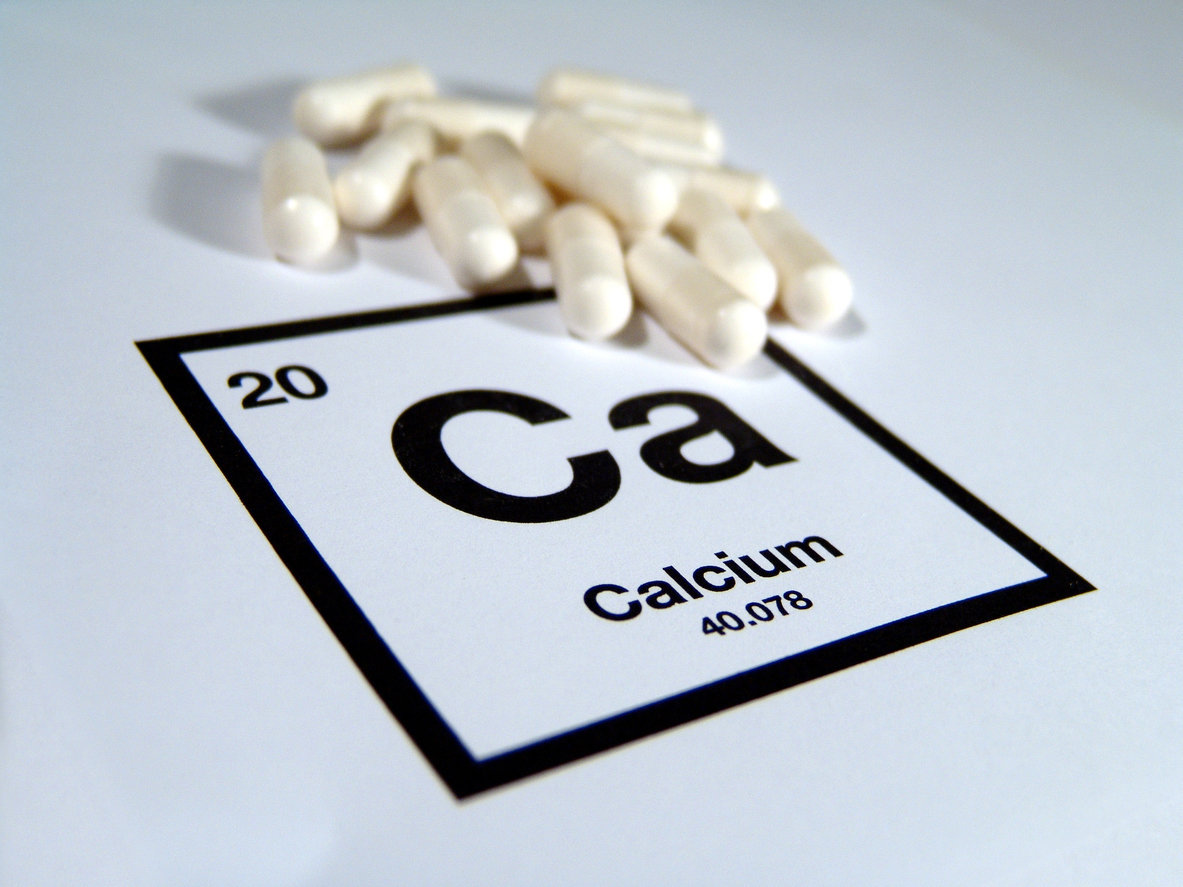
Research published in Cancer Epidemiology, Biomarkers & Prevention notes, "Vitamin D and calcium are strongly correlated and share similar anticarcinogenic effects on mammary gland. Hence, any apparent effect of vitamin D on breast cancer risk might be due in part to an effect of calcium and vice versa." For women under 50, 1,000 mg a day is recommended, and for women over 50, go for 1,200 mg.
Steer Clear of Sweet Drinks
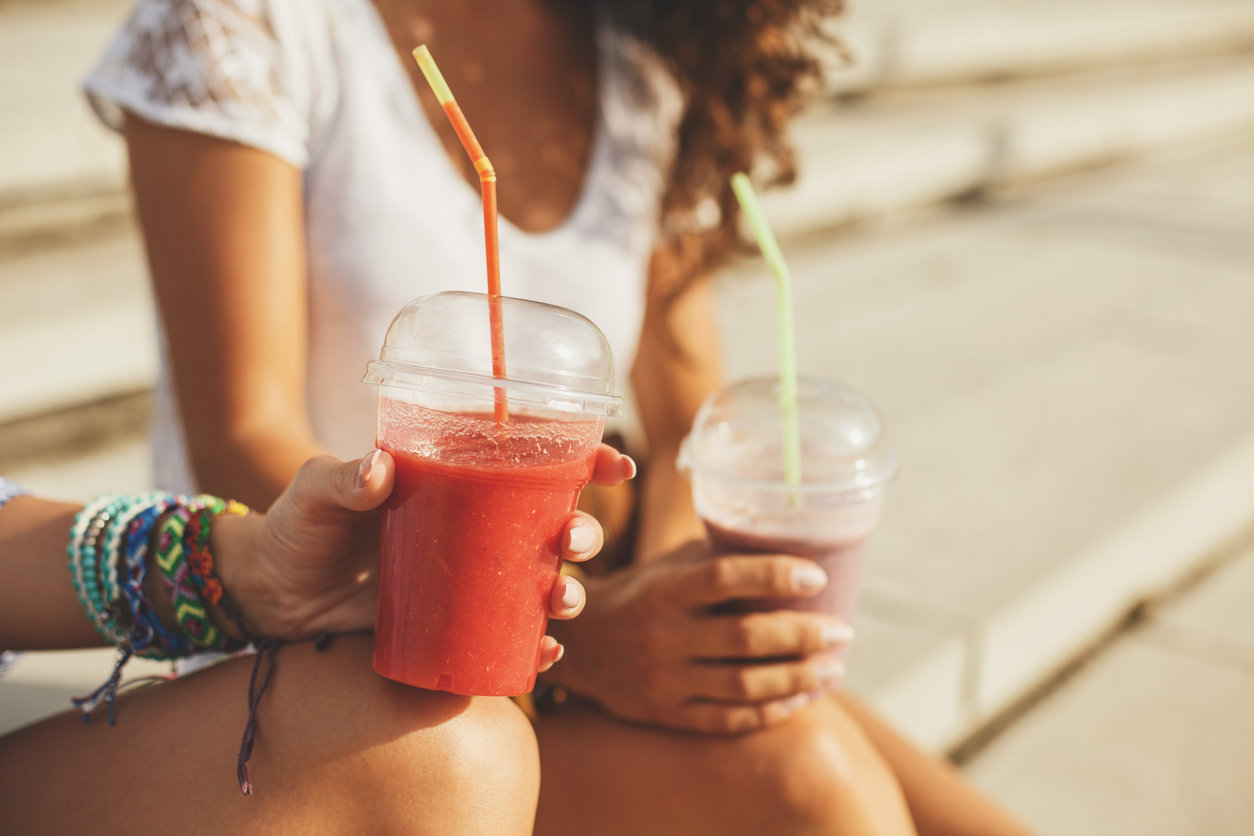
When we think of sugar-sweetened beverages, soda may be the first one that comes to mind, but you'll also do well to think twice about "juice-like" beverages, sports drinks and anything with added sugar, notes Dixon. "Added sugars are linked to weight gain and being overweight," she explains. "Excess weight is linked to higher breast cancer risk."
Choose Alternatives to Air Travel When Possible

A study published in the journal Environmental Health notes that female flight attendants had a higher prevalence of every cancer the researchers examined, especially breast cancer, melanoma, and non-melanoma skin cancer among females. They explain this may be due to cosmic ionizing radiation from outer space, which people are exposed to at higher levels when flying at high altitudes. Flight attendants' irregular sleep patterns may also contribute to this finding.
Watch Out For Lumps, Nipple Discharge, & Nipple Retraction
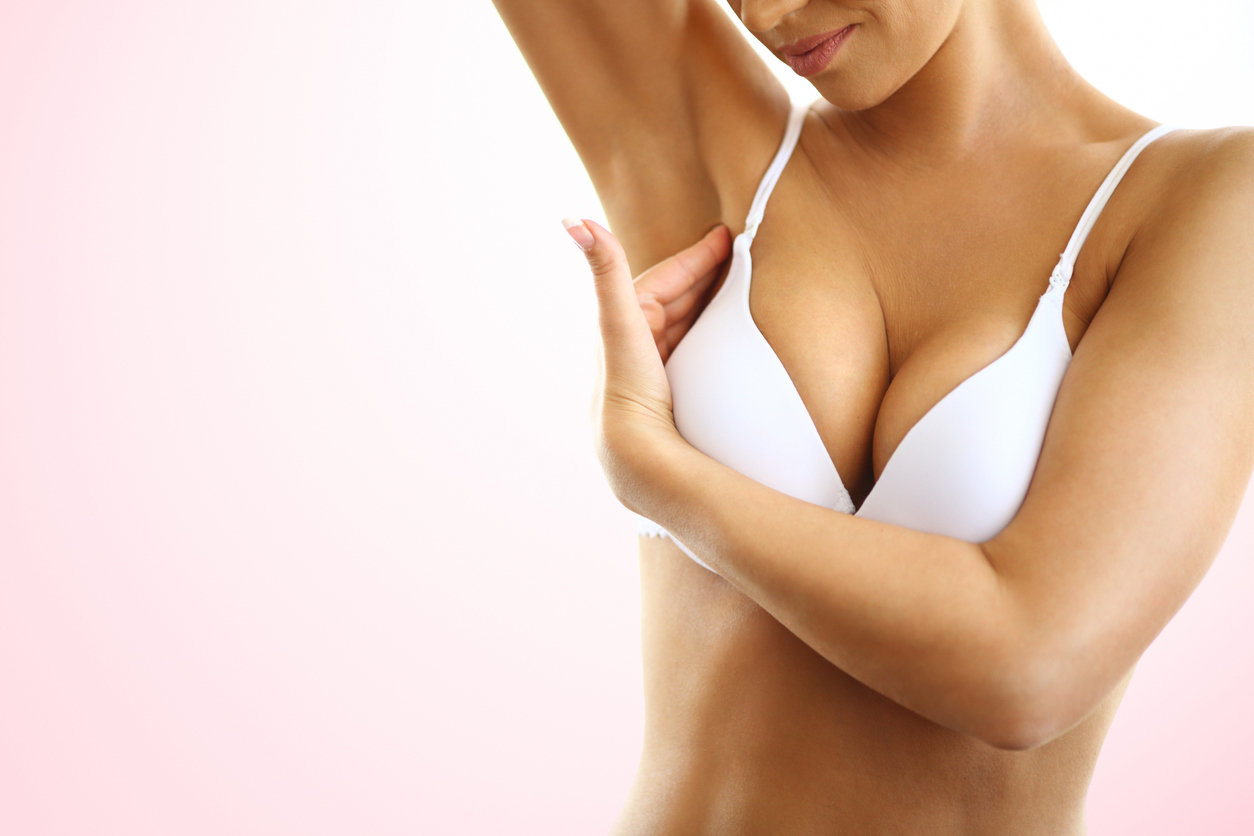
These symptoms may serve as red flags for cancer themselves, but even if a mammogram comes back clear, Spanish researchers say you might want to discuss more frequent or different screenings with your doctor. That's because they found these symptoms were associated with a higher risk of women being diagnosed with breast cancer in the interval before their next scheduled screening.
Skip or Limit Processed Meat
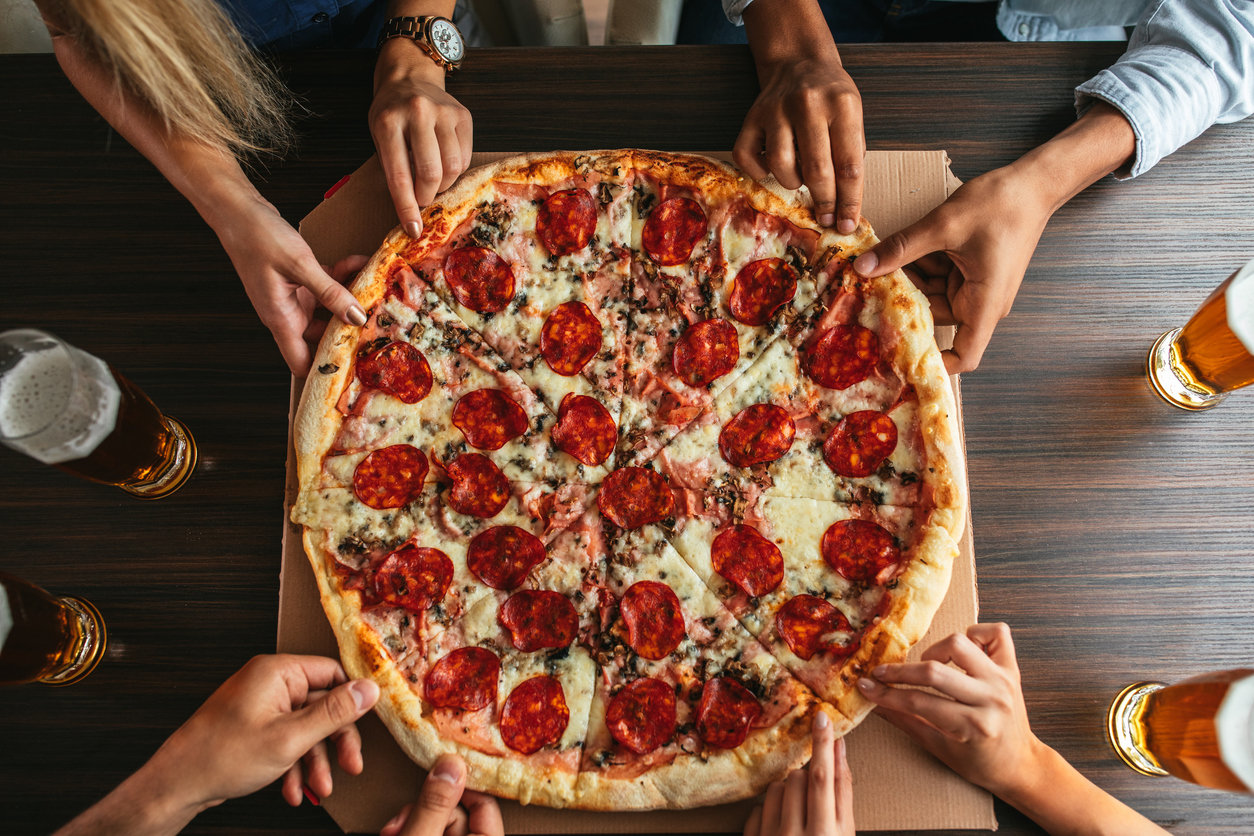
"Sorry bacon lovers, processed and cured meat — bacon, ham, hot dogs, lunch, and deli meats — is linked with several types of cancer, including breast cancer," Dixon notes. She points to a recent report from the American Institute for Cancer Research that states "no amount of processed meat is considered safe to eat."
Eat Whole Soy Foods
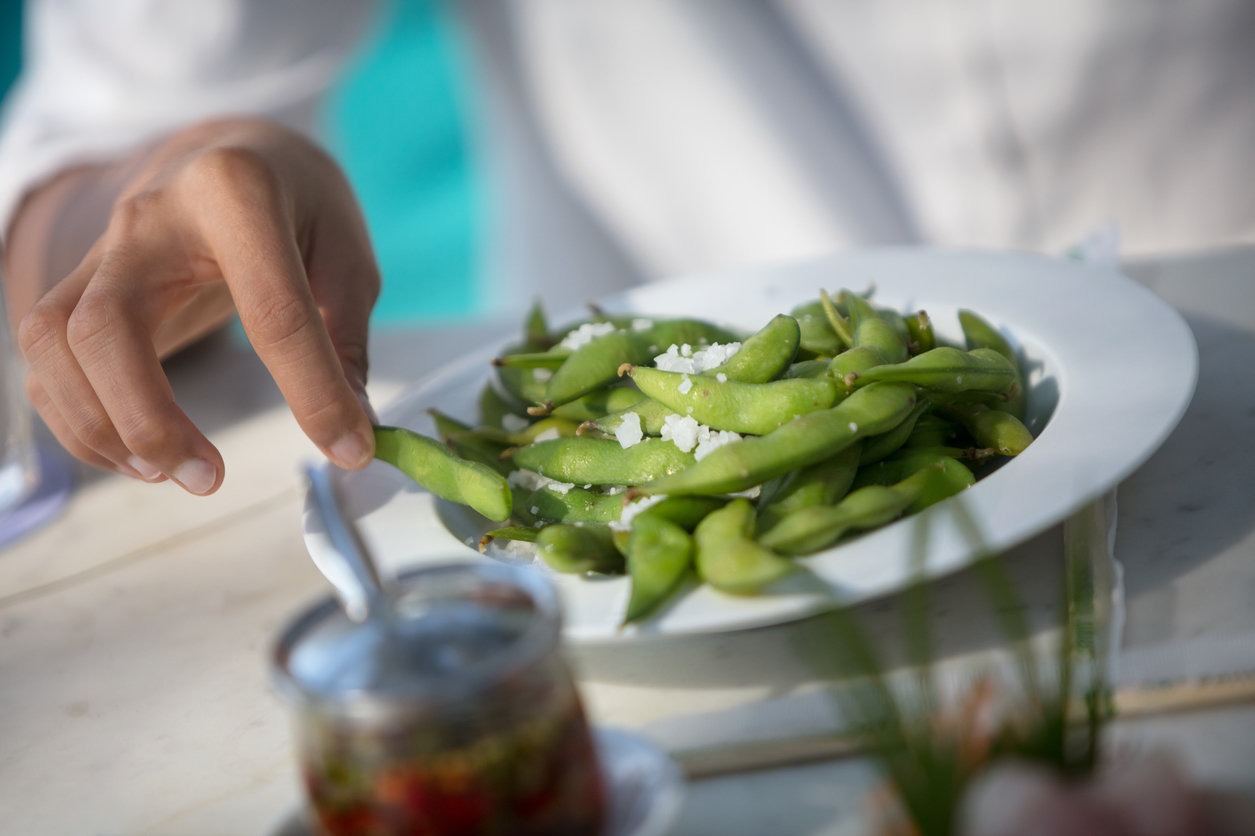
Myths swirl around soy, like the thought that the phytoestrogen mimics the hormone and "feeds" breast cancer, says Dixon. She notes that, in fact, soy reduces breast cancer risk, but only if you eat it in traditional forms: tofu, tempeh, edamame, and miso. It's also wise to stick to a moderate amount, or one to two servings a day of whole soy foods.
"Soy protein powders and other packaged foods with added soy are not helpful for reducing breast cancer risk," she says.
Be Your Own Best Health Advocate
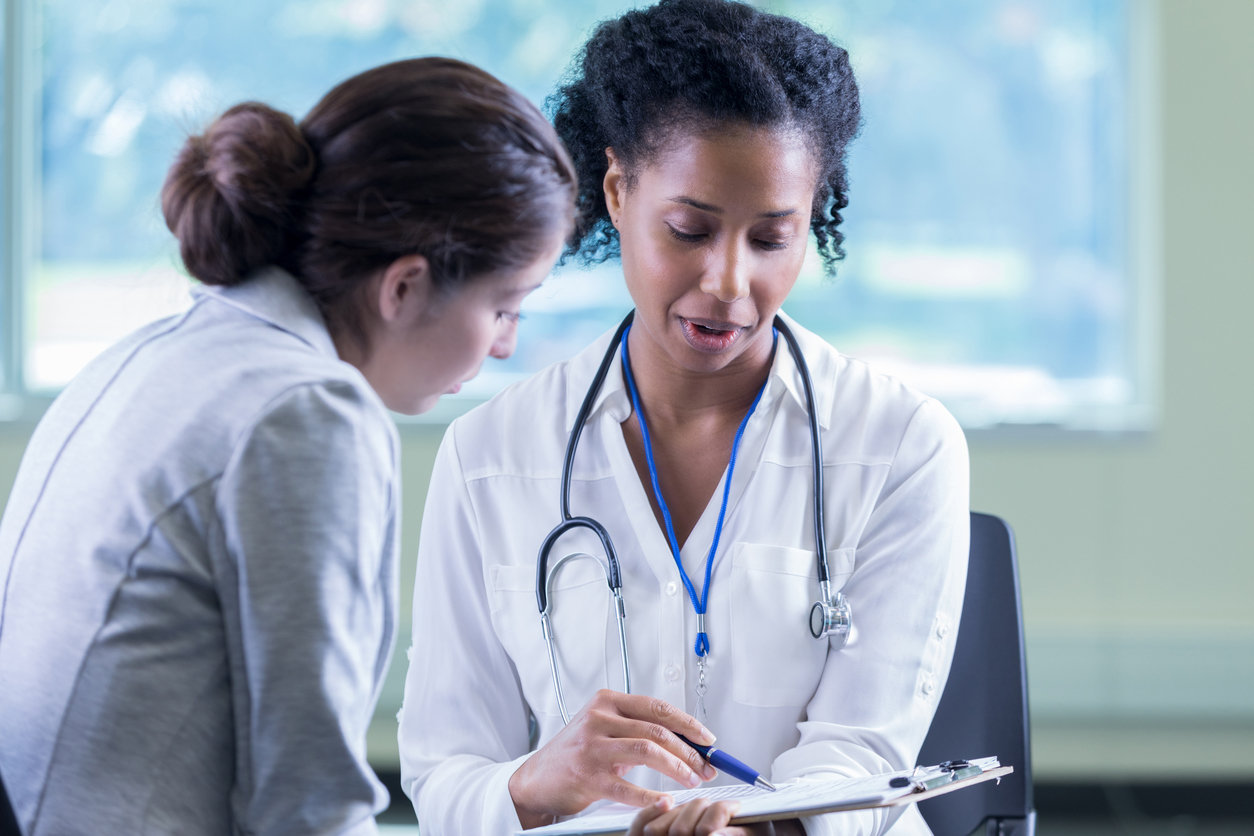
If something strikes you as off — a lump in your breast, any sort of swelling or redness, a lump in your underarm — make sure you see your health care provider STAT.
Quit Smoking
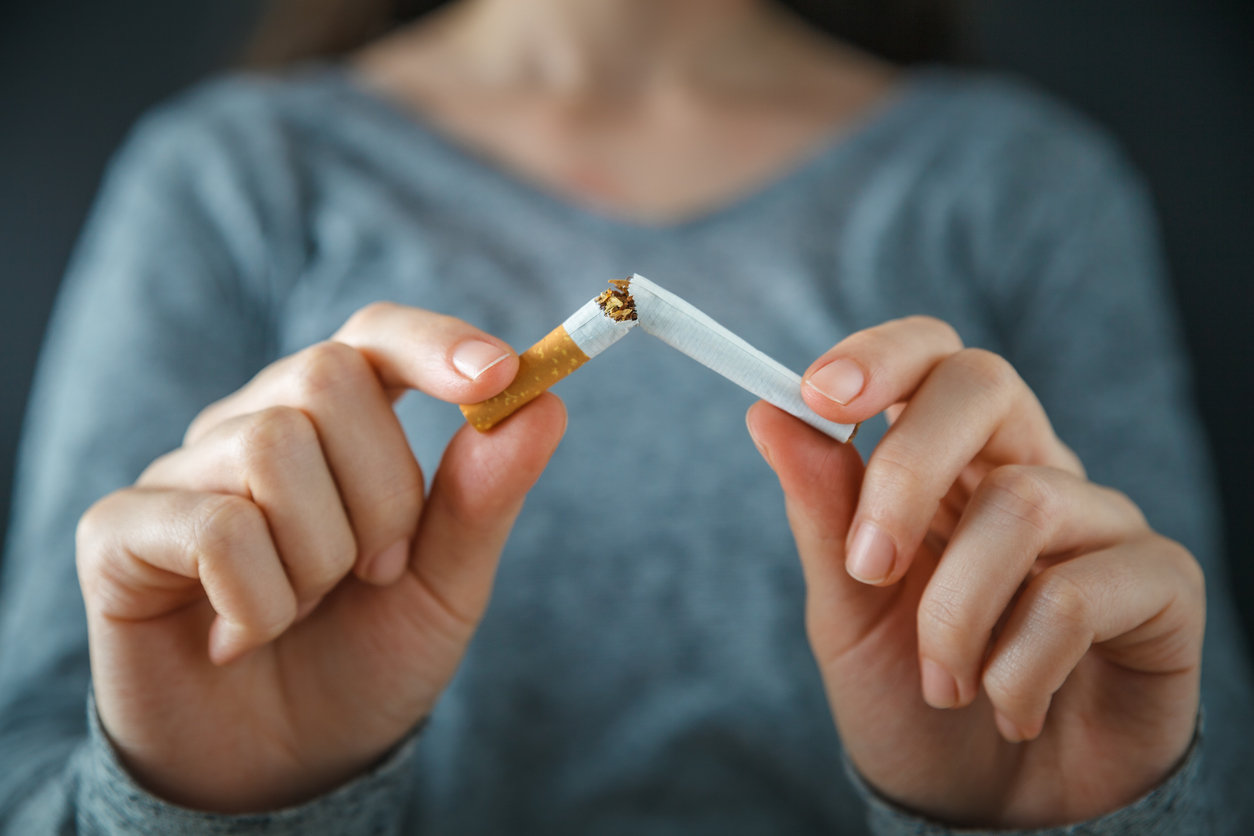
In addition to being bad news for your health overall, smoking has been shown to slightly increase risk of breast cancer.
Get Familiar With Your Breasts
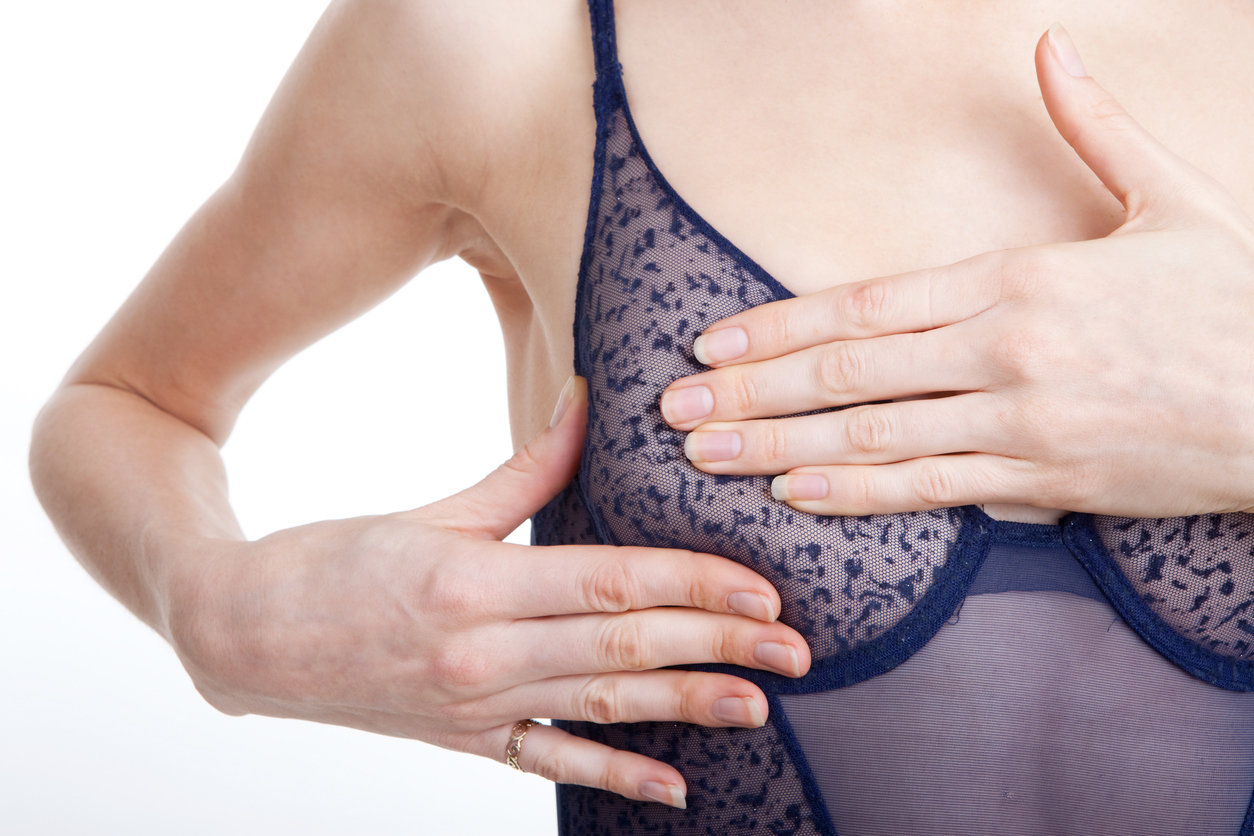
Breast self-exams make you more likely to know the look and feel of your breasts, which makes it easier for you to detect changes that you can report to your health care provider. When it comes to preventing breast cancer, knowledge is most definitely power.
Consider Nonhormonal Forms of Birth Control
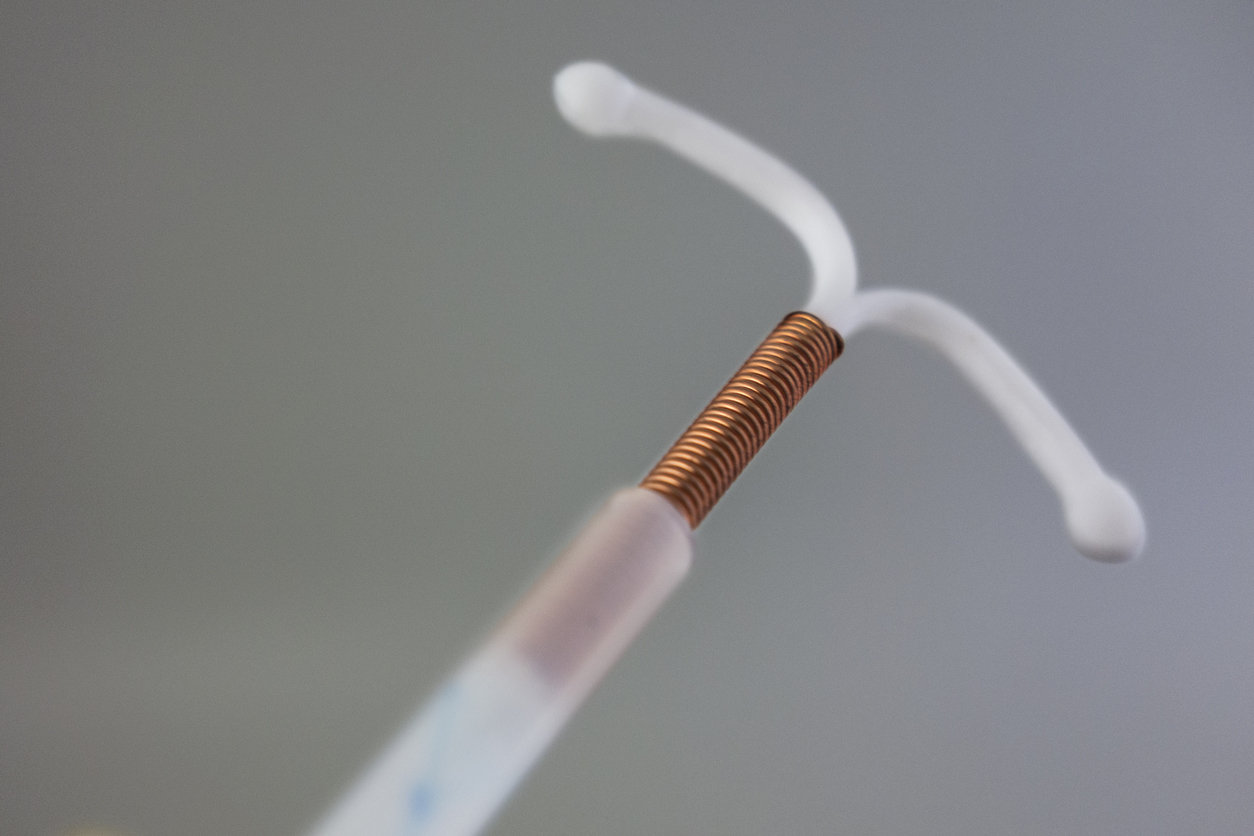
Using nonhormonal birth control (think the copper-T IUD, the fertility awareness method, or condoms) can mean lower breast cancer risk. An analysis of data published in the Lancet that involved 150,000 women who participated in 54 epidemiologic studies showed that, overall, women who had ever used oral contraceptives had a slight (7 percent) increase in the relative risk of breast cancer compared with women who had never used oral contraceptives. Women who were currently using oral contraceptives had a 24 percent increase in risk that did not increase with the duration of use. Risk declined after use of oral contraceptives stopped, and no risk increase was evident by 10 years after use had stopped.
Eat Parsley
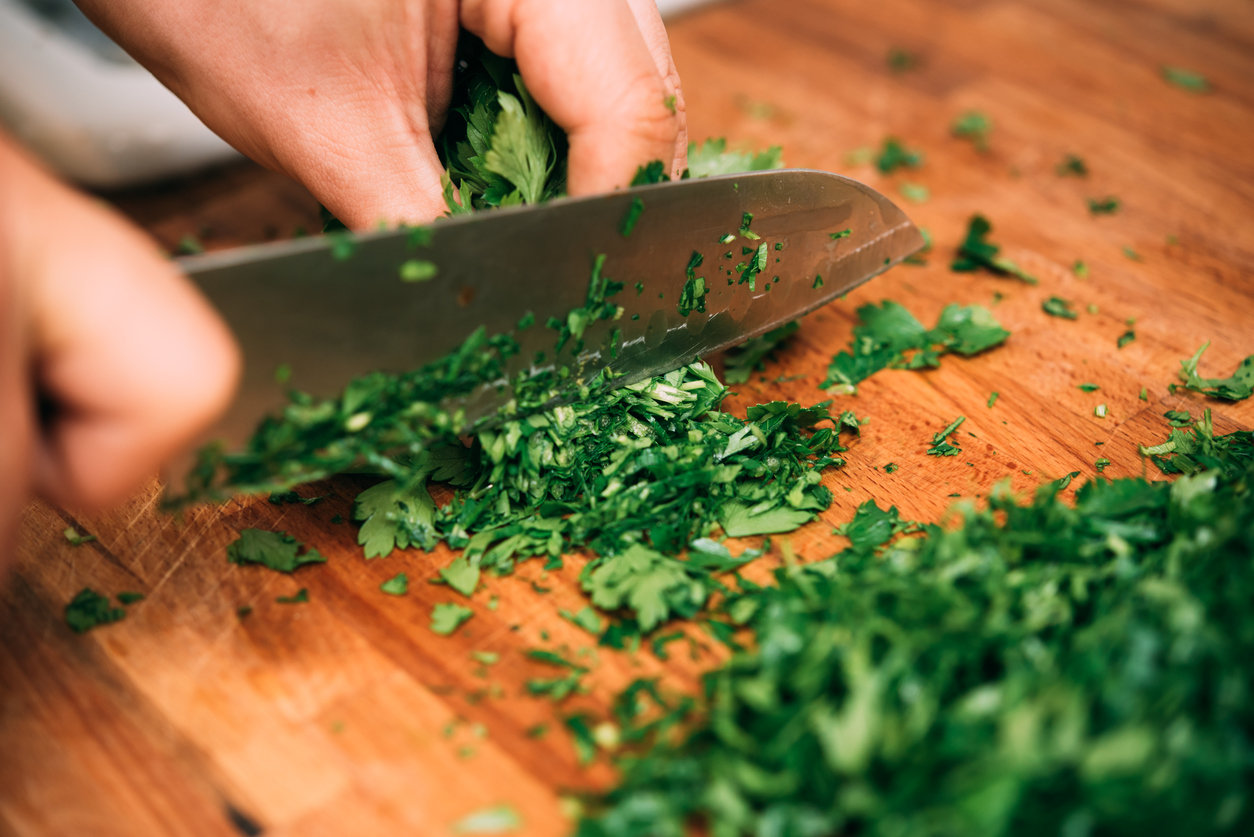
It's not just a garnish! Incorporating the herb into your diet could lower breast cancer risk. An animal study published in Cancer Prevention Research found that when rats with breast cancer were exposed to a compound in parsley called apigenin, they developed fewer tumors and experienced significant delays in tumor formation.
Consider Taking Low-Dose Aspirin Several Times a Week
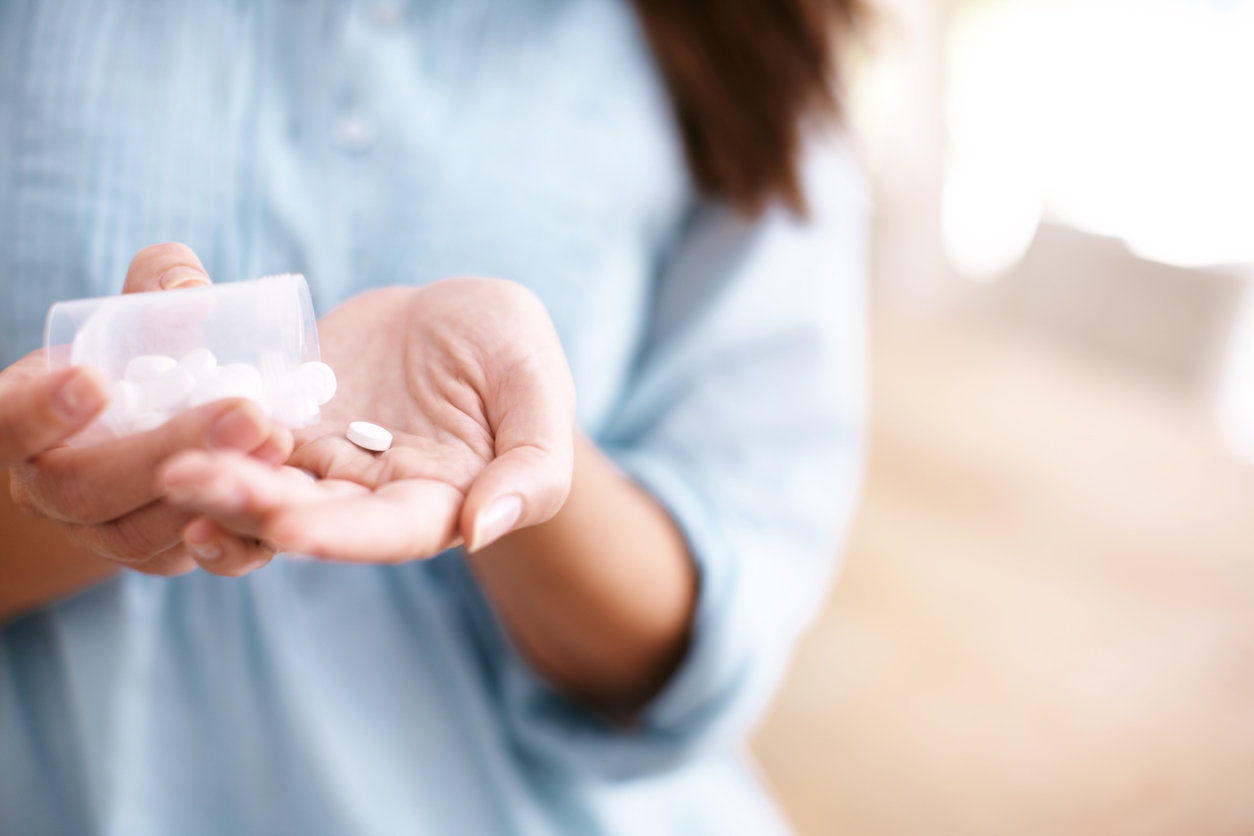
Research published in the journal Breast Cancer Research found that taking low-dose aspirin at least three times a week reduced the overall risk of breast cancer by 16 percent. And it cut the risk of HER2-negative breast cancer (the most common type) by 20 percent. Experts aren't sure exactly what the link is between aspirin and breast cancer risk, but it may be a move worth discussing with your doctor.
Try to Sit Less, and Stand or Walk More

Though a regular exercise routine is in and of itself a way to reduce cancer risk, simply cutting back on how much you're sitting is important, too. A study from the American Cancer Society found that women who sit for six or more hours a day are 10 percent more likely to develop myeloma, ovarian, and invasive breast cancers than women who sit for less than three hours daily. The researchers suggest building in activities like walking further from your car, standing during a conference call, or taking even just a one- or two-minute standing and walking break every hour.
Think About Getting Tested for The BRCA1 or BRCA2 Genes
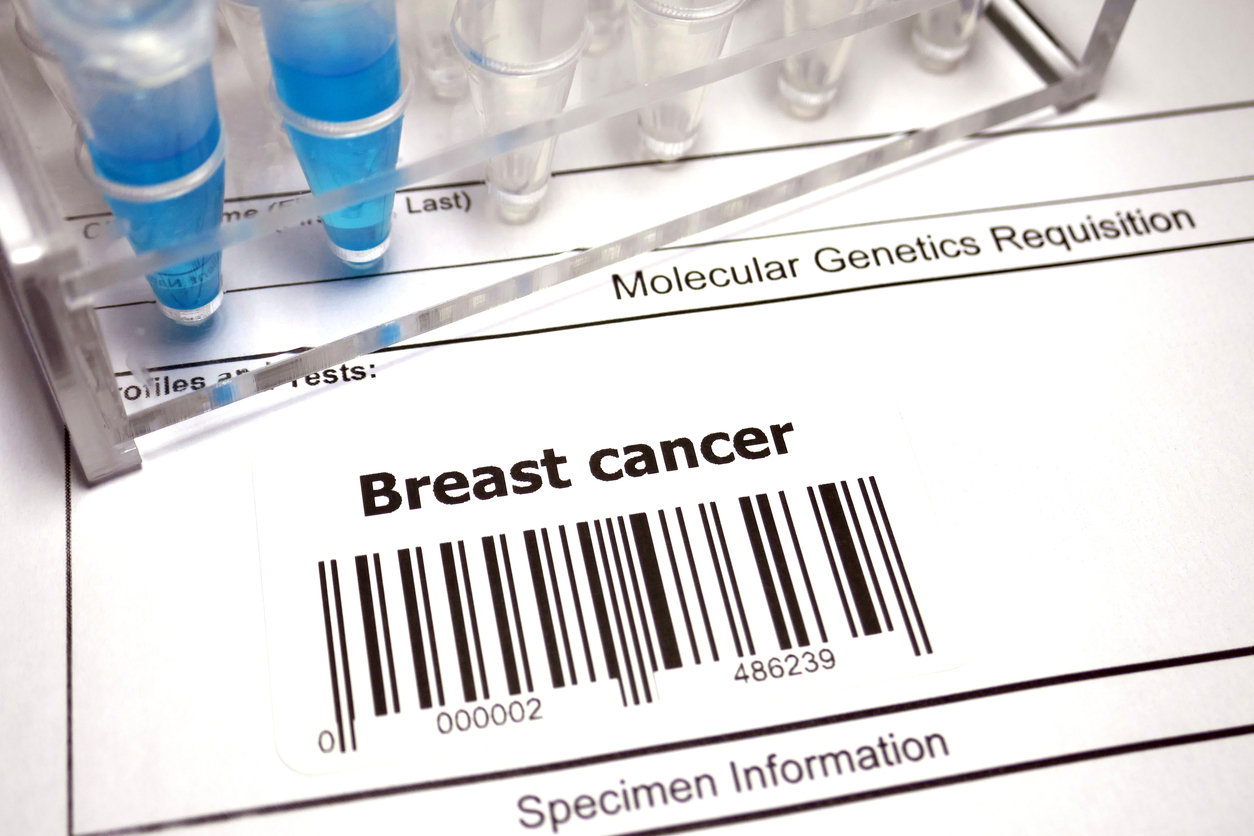
Getting tested for the breast cancer genes — BRCA1 and BRCA2 — could significantly reduce risk. If you do happen to be positive, risk reduction surgery (removal of the breasts) could be a lifesaver, notes research published in JAMA.
Try Not to Eat Too Close to Bedtime

Going to bed on a full stomach may interfere with your sleep and up your cancer risk, according to research published in the International Journal of Cancer. The study found that people who ate their evening meal before 9 p.m. and held off for at least two hours before getting their Zs had a 20 percent lower risk of breast (and prostate) cancers, versus those who ate dinner after 10 p.m. or who ate and went to bed immediately.

